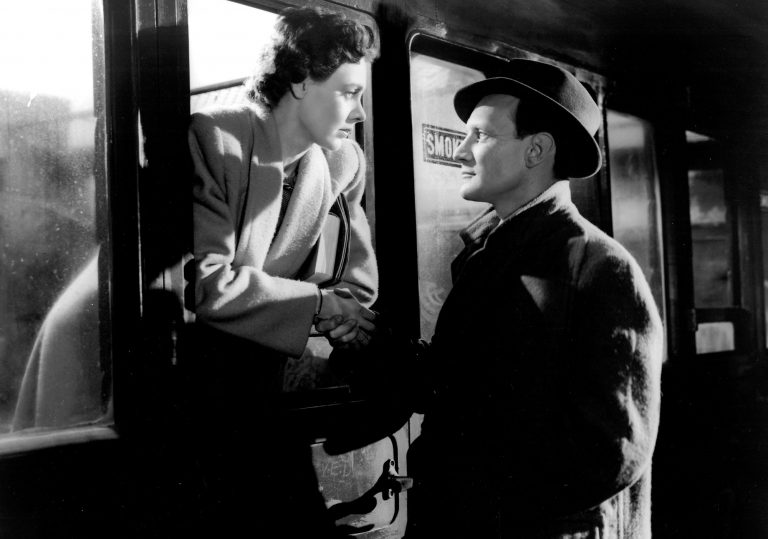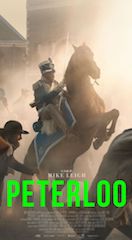
| |
Director: Mike Leigh, 2018
This film portrays the events surrounding the infamous 1819 Peterloo Massacre, in which a peaceful political rally at St Peter's Field in Manchester turned into one of the most notorious acts of state violence in modern British history. Fifteen protesters were killed by the army and hundreds more were injured, sparking a nationwide outcry. The Peterloo Massacre—named in ironic comparison to Britain’s victory over Napoleon at Waterloo four years earlier—was a defining moment in Britain’s path toward democracy.
© BFI Films
|
|
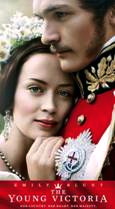
| |
Director: Jean-Marc Vallée, 2009
This lavish costume drama focuses on the turbulent and lonely years of Queen
Victoria's childhood, her accession to the throne when she was eighteen years
old, and the uncertain beginning of her long reign. Her eventual success as
a monarch was nurtured through two crucial relationships: her engagement and
marriage to her German cousin Albert, the prince-consort, and the political mentoring provided
by her first prime minister, Lord Melbourne.
© Sony Pictures
|
|
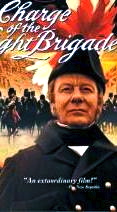
| |
Director: Tony Richardson, 1968
This film chronicles the events that led to British involvement in the Crimean War
against Russia culminating in the siege of Sevastopol and the fierce Battle of Balaclava
in October 1854. The climax is the heroic but doomed charge of British cavalrymen ordered
to advance against well-defended Russian artillery. Immortalized in the epic poem by Alfred,
Lord Tennyson, the Light Brigade's destruction owed primarily to the jealousy, infighting,
and gross incompetence of its aristocratic commanders. © MGM/UA
|
|
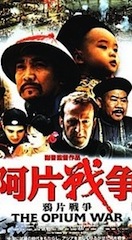
| |
Director: Xie Jin, 1997
This Chinese epic tells the story of the 1840-41 war between Britain and the declining Qing dynasty that resulted in the forced opening of Chinese markets to the opium trade and the establishment of the British colony of Hong Kong. Yapian Zhanzheng received enthusiastic support from the Beijing authorities and was the most expensive Chinese film ever made at the time of production. It was released in 1997 to coincide with the handover of Hong Kong.
© Araba Films
|
|
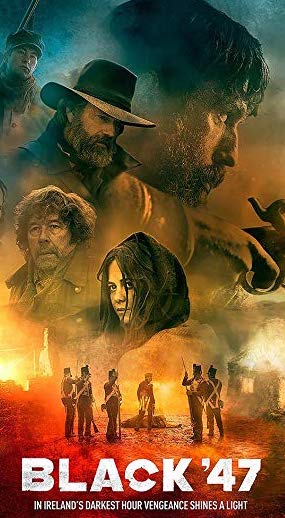
| |
Director: Lance Daly, 2018
Set in 1847, the worst year of the Great Famine in Ireland, this film follows Martin Feeney, a deserter from the Connaught Rangers, who returns from Afghanistan and India to his home in Connemara to rescue his destitute family. His vengeance against British constables and a local landlord make him a hunted man as he evades capture by the authorities. A graphic depiction of the devastation of the Irish Famine with some dialogue in the Irish language.
© IFC Films
|
|
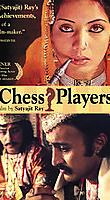
| |
Director: Satyajit Ray, 1977
In 1856, officials of the East India Company move to consolidate their
hold over North India by annexing the wealthy kingdom of Awadh. The chief minister to
the Nawab attempts to warn his ruler and local landlords of the impending danger
but they ignore him and instead indulge their obsession with playing chess.
The game becomes a metaphor for the larger game of politics played by the British as they
maneuver to capture Awadh's king. Based on the 1924 short story by Premchand.
© Shemaroo
|
|
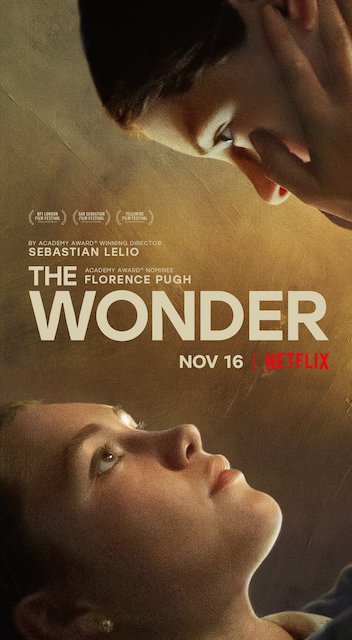
| |
Director: Sebastián Lelio, 2022
This psychological drama is set in the Irish Midlands in 1862. English nurse Elizabeth
Wright is brought to a small village to observe eleven-year-old Anna O’Donnell, who is
said to have survived without food for months but appears healthy. Is the village harboring
a saint or are there more ominous motives at work? A bleak and noirish look at religious
superstition and village politics in post-Famine rural Ireland. Based on the 2016 novel by
Emma Donoghue.
©
Netflixt
|
|
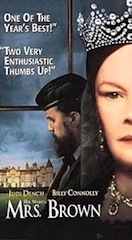
| |
Director: John Madden, 1997
This film examines at the relationship between Queen Victoria and John
Brown, a Scottish commoner who, though a servant, became her closest friend and
confidant. As such, he proved the catalyst to bring her back
into public life and out of her private mourning for the late Prince
Albert, who had died in 1861.
© Miramax
|
|
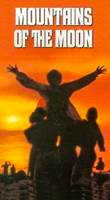
| |
Director: Bob Rafelson, 1990
This film traces the friendship between Victorian explorers Richard Burton
and John Hanning Speke that broke down during their 1856 expedition to find the source
of the Nile, a route that took them through East Africa from Zanzibar
to the shores of Lake Victoria. Based on the 1982 biographical novel by William Harrison
and the travel diaries of Burton and Speke.
© Artisan Entertainment
|
|
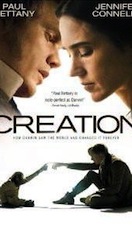
| |
Director: Jon Amiel, 2009
Charles Darwin, a brilliant scientist and devoted family man, struggles to come to
terms with the devastating loss of his eldest daughter, Annie. Worried that
his path-breaking theory of evolution might alienate his deeply religious wife
and endanger their marriage, Darwin had procrastinated completing his manuscript.
Yet the memory of his inquisitive, intelligent and highly logical daughter spurs him
to complete Origin of Species and send it off for publication.
© BBC Films
|
|
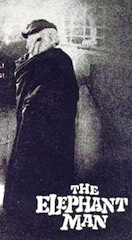
| |
Director: David Lynch, 1980
This gothic drama gives a moving portrayal of John Merrick, the grotesquely deformed
Victorian-era man better known as "The Elephant Man". Inarticulate and abused, Merrick
ekes out a miserable living as a sideshow freak until a dedicated London doctor,
Frederick Treves, rescues him from his former life and offers him an existence with
dignity and acknowlegement of his humanity. A well-rendered view of the Victorian medical community.
© Paramount
|
|
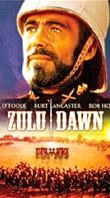
| |
Director: Douglas Hickox, 1979
This epic recounts the Battle of Isandlwana fought on 22 January 1879
in Natal, South Africa. In the course of the fighting about 1,200 British soldiers
were massacred by a force of over 20,000 Zulu warriors and the regimental
colors were lost. Isandlwana was the first engagement of the Anglo-Zulu War
and stands as one of the most shocking defeats in British military history.
Zulu Dawn was written by Cy Enfield as a prequel to his more successful
film Zulu released fifteen years earlier.
© Tango Entertainment
|
|
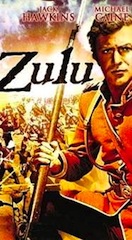
| |
Director: Cy Endfield, 1964
In 1879 the British Army suffered one of its worst defeats when
Zulu forces massacred 1,200 of its troops at Isandlwana in South Africa. A short time after the
main battle a Zulu force numbering in excess of 4000 warriors advanced
on a British supply post at "Rorke's Drift" guarded by 139 Welsh
infantrymen. This film was made in the 1960s at a time when Britain's
colonial control over Africa was rapidly disintegrating.
© MGM/UA
|
|
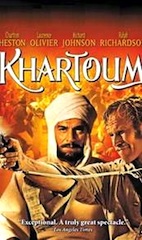
| |
Director: Basil Deardon, 1966
This Hollywood epic recounts the ill-fated struggle in 1885 of General Charles
Gordon and his British-Egyptian regiment to hold the Sudanese city of Khartoum
in the face of an attack by the forces of the Mahdi, a charismatic religious
leader bent on the expulsion of the British. A stylized portrayal of Gordon's
Christian zeal and stubbornness set against the messianic goal of the Mahdi to wage
a holy war against the foreign infidels.
© MGM/UA
|
|
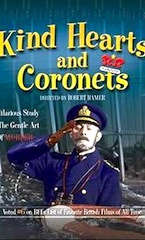
| |
Director: Robert Hamer, 1949
Set in Victorian England, this film remains the most popular of the postwar comedies produced
at Ealing Green Studios. Louis D'Ascoyne is the would-be Duke of Chalfont whose mother
was spurned by her noble family for marrying an Italian singer for love. Louis resolves
to avenge his mother by murdering the relatives ahead of him in line for the dukedom,
all of whom are played by Alec Guinness. Other Ealing comedies include The Lavender Hill Mob (1951),
The Man in the White Suit (1951), and
The Ladykillers (1955).
© Anchor Bay Entertainment
|
|
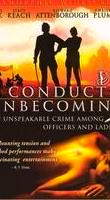
| |
Director: Michael Anderson, 1975
The plot revolves arounds a scandal in a British regiment stationed in India in the 1870s.
Lt. Drake is from a middle-class background and is eager to advance himself by making the
right impression. Lt. Millington, the son of a general, is not keen on army life and desires
to get out as soon as he possibly can. When the widow of the regiment's most honored hero
is assaulted, Drake must defend Millington from the charges in an unusual court-martial.
Based on the 1969 play by Barry England.
© Crown Films
|
|
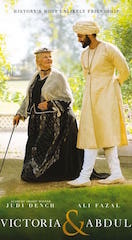
| |
Director: Stephen Frears, 2017
In 1887, Abdul Karim, a young police clerk from Agra, is selected by the British colonial goverment to travel to London to present a gift to Queen Victoria on the occasion of her Golden Jubilee. Abdul strikes up an unlikely friendship with the "Empress of India" and stays on in Britain to become her servant and, at her request, her munshi (teacher) of Urdu and the Qur'an. When Victoria dies in 1901, Abdul returns to India. Based on the book by Shrabani Basu and Abdul's diary discovered in 2010.
© BBC Films
|
|
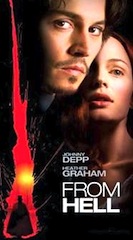
| |
Directors: Albert and Allen Hughes, 2001
A stylish and dark thriller based on the infamous Whitechapel murders of 1888 that
terrorized the residents of East London and baffled police. This is the most recent among
many popular films about "Jack the Ripper" and provides an artful recreation
of crime, poverty, and survival in the slums of Victorian Britain. The film's title "From Hell"
refers to the return address on one of the notes left by the Ripper. Based on the 1999 graphic
novel by Alan Moore and Eddie Campbell
© Fox Searchlight
|
|
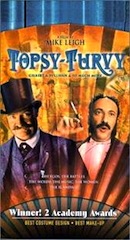
| |
Director: Mike Leigh, 2000
The legendary musical duo Gilbert and Sullivan are at a crossroads in
their careers. Having scored numerous hits like The Pirates of Penzance
and HMS Pinafore, they are mired in a creative dry spell. The plot revolves
around the inspiration for their comic opera The Mikado. Gilbert & Sullivan
operettas were extraordinarily popular among the very same Victorian society that they
satirized. Considered by many to be quinessentially English, they remain beloved by
audiences worldwide.
© USA Films
|
|
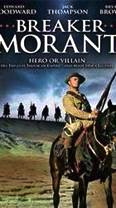
| |
Director: Bruce Beresford, 1980
The true story of three Australian army officers
serving in the Bushveldt Carbiniers, a unit of the British forces
fighting in the Boer War, who were court-martialed by the British
South African High Command for alleged atrocities. To this day many Australians
claim the men were scapegoats in an unpopular war. This courtroom drama reveals well the growing tensions between Britain and her imperial dominions.
Based on the 1979 play by Australian Kenneth Ross. © Fox Lorber
|
|
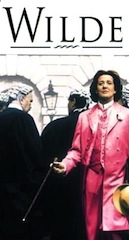
| |
Director: Brian Gilbert, 1997
An intimate portrayal of the life of poet, playwright, and novelist Oscar Wilde. The self-realization of his
homosexuality caused Wilde enormous torment as he juggled marriage and fatherhood
with his obsessive love for Lord Alfred Douglas. Wilde refused to flee the country when charged with
"gross indecency" and was sentenced to two years hard labor. This film juxtaposes the genius
of Wilde against the intolerance and hypocrisy of late Victorian Britain.
© Columbia/TriStar
|
|
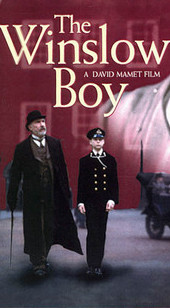
| |
Director: David Mamet, 1999
In 1911, London banker Arthur Winslow learns that his 14-year-old son, a naval cadet, has been expelled from college after being accused of petty theft. The boy denies the offense and Winslow then risks his fortune, health, and daughter's marriage prospects to pursue justice and restore his family's honor. After a guilty verdict by a naval board of inquiry, Winslow takes the matter all the way to Parliament. Based on the 1946 play by Terence Rattigan and a real incident that took place at the Royal Naval College, Osborne, in 1908. © Sony Pictures Classics
|
|
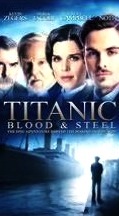
| |
Director: Ciaran Donnelly, 2012
In 1909 the Harland & Wolff shipyard in Belfast embarked on the most ambitious project in its history: to build the largest ship in the world. This television miniseries recreates the events of the three-year construction of the unsinkable liner Titanic from the perspective of the wealthy investors, middle-class engineers, and working-class shipyard crews. The plot alternates between the technical details of the fated liner and the rising political consciousness of Belfast's Protestants and Catholics.
© Lions Gate
|
|
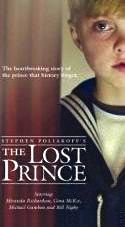
| |
Director: Stephen Poliakoff, 2003
The heartbreaking true story of Prince John, youngest child of King George V and
Queen Mary. His short and sad life spanned from the pomp of the Edwardian court through the turmoil
of the First World War. A loving, insightful, and humorous child, John suffered from epilepsy and
autistic-like learning difficulties and was diagnosed as an "imbecile". An embarrassment to his
image-conscious family, he was isolated from public view in one of the royal estates until his
premature death.
© BBC Films
|
|
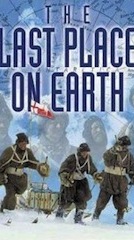
| |
Director: Ferdinand Fairfax, 1985
This miniseries recounts the tragic story of the Scott expedition's failed attempt in 1911 to be the first to reach the South Pole. Their arrival at the pole five weeks after Roald Amundsen's Norwegian team was demoralizing enough, but the return journey proved even worse. After his death, Capt. Robert Scott was lionized as an Edwardian hero but in recent years his leadership and personality have been questioned. This series, beautifully filmed in Greenland, offers a much less flattering portrayal of Scott than the glorified image in the 1948 film Scott of the Antarctic.
© Renegade Productions
|
|
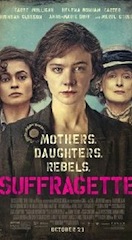
| |
Director: Sarah Gavron, 2015
Maud Watts, a young laundress from London, becomes involved with the Suffragettes, also called the Women's Social and Political Union (WSPU), a movement around the turn of the twentieth century that fought to achieve votes for women. Excluded from the established political system, the Suffragettes turned to dramatic and, at times, violent tactics to make their voices heard.
© Pathé
|
|
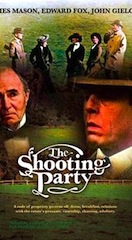
| |
Director: Alan Bridges, 1985
In the summer of 1913 a small group of lords and ladies gathers at the country estate of Sir Randolph Nettleby for a shooting party. A code of aristocratic propriety governs every aspect of the event—including speech, dress, dining, interaction with the estate's tenants, courtship, shooting, and even adultery. An accurate and nuanced portrayal of a way of life that on the eve of the First World War was already in the midst of an irreversible decline.
© Jef Films
|
|
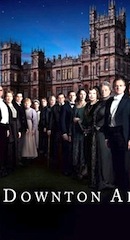
| |
Creator: Julian Fellowes, 2010
This acclaimed series is set in a fictional Yorkshire estate and revolves around the lives of the Crawleys, an aristocratic family living through the great events of the early twentieth century. The plot portrays changes in British society and class sensibilities beginning in the post-Edwardian years and lasting into the chaos and uncertainty of the Interwar period. Some critics have noted that popularity with American viewers has affected the depiction of class attitudes and other social behavior in later episodes.
© Carnival Films
|
|
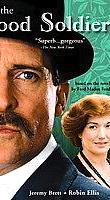
| |
Director: Kevin Billington, 1981
In the decade before the First World War, two wealthy and attractive upper class couples—one English, one
American—meet at a German spa and forge an immediate bond. Through nine seasons at the spa, the four
come to share with each other their same tastes, desires, and elegantly perfect Edwardian lives. Over
time, however, it becomes clear just how far short of perfection their lives really are. Based on the
1915 semi-autobiographical novel by Ford Madox Ford.
© Acorn Media
|
|
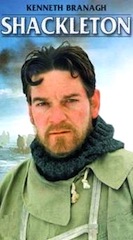
| |
Director: Charles Sturridge, 2002
This miniseries tells the story of Britain's great "Imperial Trans-Antarctic
Expedition" of 1914 led by Sir Ernest Shackleton. The plot focuses primarily on Shackleton's
epic struggle to lead his 28-man crew to safety after their expedition ship Endurance
was crushed in pack ice. By the beginning of the twentieth century, polar exploration
represented for Britain the last great frontier of imperial discovery. Filmed in Iceland and Greenland.
© A&E Home Entertainment
|
|
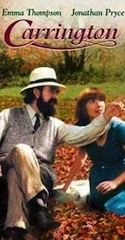
| |
Director: Christopher Hampton, 1995
This film recreates the lives of the Bloomsbury group of intellectuals and artists in
Edwardian England, as seen through the relationship between the painter Dora Carrington
and writer Lytton Strachey. Carrington will not give herself to any of the men in her
life (including her husband)—at least not emotionally. Instead, she has found her
soulmate in Strachey, a homosexual who, in fact, is infatuated with Carrington's
husband.
© MGM/UA
|
|
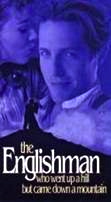
| |
Director: Christopher Monger, 1995
Two English surveyors visit the small South Wales village of Ffynnon Garw in 1917 to
measure what is claimed to be the "first mountain inside of Wales". The villagers
are proud of their "mountain" and are disappointed to learn that it is in fact a
"hill". Not to be outdone by a mere rule (and the English who enforce it), the villagers
set out to make their hill into a mountain. A comic look at Welsh pride and the
attitudes of the "Celtic periphery" towards English predominance.
© Miramax
|
|
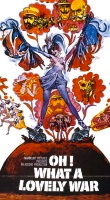
| |
Director: Richard Attenborough, 1969
An unlikely musical satire about the First World War as portrayed by the leaders of the great powers and the members of an average British family, the Smiths, who go off to fight. Much of the plot is conveyed in the lyrics of actual songs from the period and many scenes recreate some of the more famous (and infamous) incidents of the war. A mocking comedy about the jingoism, cynical politicking, and wartime enthusiasm that sent so many to die. Based on the 1963 stage musical of the same name.
© Paramount
|
|
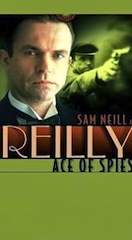
| |
Directors: Martin Campbell and Jim Goddard, 1983
This television series dramatizes the extraordinary life and exploits of Shlomo ben Hersh
Rozenblium (a.k.a. Sidney Reilly), a Russian-Polish Jew who immigrated to Britain and became the world's first
modern super-spy. With his remarkable gift for self-invention and reinvention, Reilly engaged in
freelance espionage against the Germans and Russians in the early twentieth century.
His resourcefulness, self-confidence, and incorrigible womanizing were later the
inspiration for Ian Fleming’s master spy, James Bond.
© A&E Home Entertainment
|
|
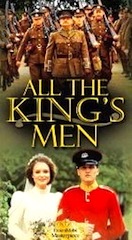
| |
Director: Julian Jarrold, 1999
At the outbreak of war in 1914 a company of the Norfolk Regiment was formed from staff members at the royal estate in Sandringham. A year later the regiment suffered heavy losses at Gallipoli and, during confusion of battle, the Sandringham Company advanced behind Turkish lines and disappeared in the smoke and mist. This film recreates the efforts by the Queen Mother, Alexandra, after the war to learn the fate of her soldier servants.
© BBC Films
|
|
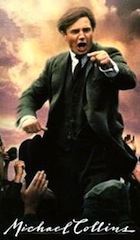
| |
Director: Neil Jordan, 1996
A biographical account of the IRA fighter and Irish statesman from
the 1916 Easter Rising to his assassination in 1922. A vivid recreation
of the Irish republican movement, the guerrilla campaign against
British forces, and the Irish Civil War. The film is historically
accurate, but the characterization of Collins, Harry Boland, and Eamon
De Valera remains controversial.
© Warner Home Video
|
|
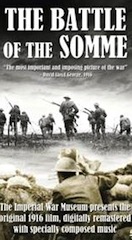
| |
Cinematographers: John McDowell and Geoffrey Malins, 1916
When this silent battlefield documentary was released in 1916 it is estimated that more than 20 million tickets were sold in the first two months alone. The film was then distributed internationally to demonstrate Britain's commitment to victory in the Great War. It has become one of the most successful British films ever made and the source of many of the war's most iconic images (though a few scenes were staged). In 2005 it became the first British document ever inscribed in UNESCO's "Memory of the World" register.
© Trustees of the Imperial War Museums
|
|
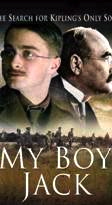
| |
Director: Brian Kirk, 2007
At the start of the First World War, famed author Rudyard Kipling uses his influence to
get his physically unqualified son, Jack, a commission in the Irish Guards. Jack's
deployment to France may be the fulfillment of the elder Kipling's patriotic dream but
it is a nightmare for Jack's mother and sister. When Jack is reported missing after
the Guards suffer terrible losses, Mrs. Kipling forces her husband to use his influence
once again, to discover the fate of their son. Based on the 1997 play by David Haig.
© Ecosse Films
|
|
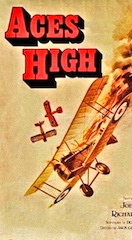
| |
Director: Jack Gold, 1976
This film depicts one week at a squadron of the Royal Flying Corps stationed along the Western Front. The squadron commander, Major John Gresham, leads his inexperienced pilots in combat and struggles to maintain unit morale amid an appalling casualty rate and high turnover. The casualty rate among rookie pilots of the RFC, from accidents and enemy action, was among the highest of any branch of the service in the First World War. Based on the 1928 play Journey’s End by combat veteran R.C. Sheriff.
© Cine Artists Pictures
|
|
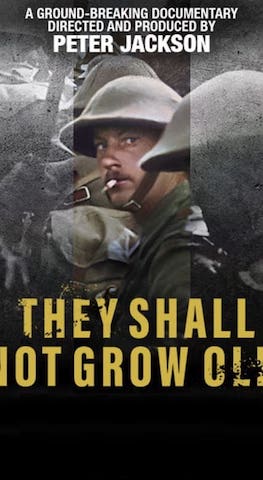
| |
Director: Peter Jackson, 2018
For this documentary, released upon the centenary of the Great War armistice, director Peter Jackson was given unlimited access to the film archives of the Imperial War Museum and the BBC, most of it previously unseen. The resulting film, which focuses on the daily lives of the men in the trenches, has been colorized and computer enhanced and augmented with sound effects and voice-overs. It has been praised as a major achievement in film restoration and an immersive and moving tribute to the men who fought in this war.
© WingNut/Imperial War Museum
|
|
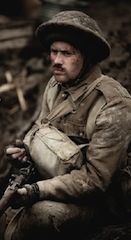
| |
Director: David Roddham, 2012
This moving short film follows two cousins from Northern Ireland who in 1917 volunteer for service in the army and are plunged into the hellish fighting along the Western Front. The brutality of combat and life in the trenches is matched by the callous indifference of the military leadership toward their soldiers suffering from shell shock and the manner in which punishment is dealt out. Twenty-six Irish-born soldiers in the British Army were executed for cowardice in the First World War. They were not officially pardoned until 2006.
© Different Productions
|
|
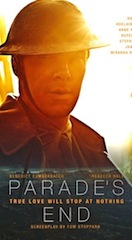
| |
Director: Susanna White, 2012
This lavish television series of the First World War focuses on Christopher Tietjens, a young British aristocrat, and his experiences amid the horrors of the trenches and the social change occurring on the home front. Much of the plot revolves around a love triangle involving Tietjens' vindictive wife Sylvia and a young suffragette named Valentine. Based on the four novels by Ford Madox Ford published between 1924 and 1928.
© BBC Worldwide/HBO
|
|
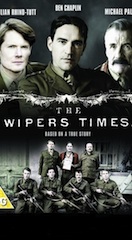
| |
Director: Andy De Emmony, 2013
In 1916, Fred Roberts, a British captain, discovered a printing press in the ruins of Ypres. Soon after, he and a few of his fellow officers began to publish The Wipers Times (a play on the British nickname for Ypres). This satirical magazine, produced under enemy fire and gas attacks, was filled with poetry, jokes, editorials, and even fake ads. The dark, subversive humor of The Wipers Times was enormously popular with the troops and helped boost their morale. The magazine was published until the end of the war and edited collections are still in print.
© Trademark Productions
|
|
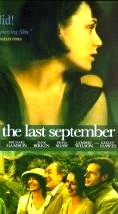
| |
Director: Deborah Warner, 1999
Set in Co. Cork in 1920, this film revolves around the lives and romantic
complications of an aristocratic Anglo-Irish family living on their estate
in the midst of the Irish war for independence. A compelling look at the
last days of the Protestant Ascendancy and of their own sense of Irishness
being tested through the changing national climate of their country and
an uncertain future. Based on the 1929 novel by Elizabeth Bowen.
© Lions Gate
|
|
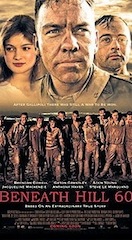
| |
Director: Jeremy Sims, 2010
The story of the 1st Australian Tunneling Company's effort to mine beneath a German bunker in the Ypres Salient at the start of the Battle of Messines in June 1917. Their extremely perilous mission was to detonate an enormous explosive charge to aid the advance of British troops. The screenplay is based on an account of the ordeal written by Capt. Oliver Woodward, the officer who led the mission.
© Paramount
|
|
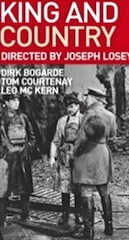
| |
Director: Joseph Losey, 1964
In the trenches at Passchendaele, an army private, Arthur Hamp, leaves his company and is accused of desertion. He is defended at his trial by Capt. Hargreaves, an upper-class officer who is initially contemptuous of the simple-minded Hamp but comes to identify with his plight. Nevertheless Hamp must be made an example of. He is found guilty and is shot by a firing squad. The action is confined to the muddy, rat-infested trenches and barracks. Based on the 1955 novel by J.L. Hodson.
© VCI Video
|
|
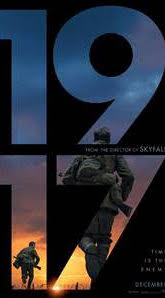
| |
Director: Sam Mendes, 2019
In April 1917, two British soldiers are ordered to deliver a message to the 2nd Battalion of the Devonshire Regiment warning of a planned ambush by Germans who have retreated from their positions to the more heavily defended Hindenburg Line. The men race against time to cross enemy territory and alert a battalion of 1600 men about the trap that awaits them. Based on stories told to the director by his paternal grandfather, Alfred Mendes, a Trinidadian veteran of the war who served in the 1st Rifle Brigade.
© Universal Pictures
|
|
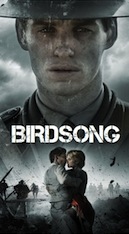
| |
Director: Philip Martin, 2012
This romance, told in a series of flashbacks, focuses on the experiences of Stephen Wraysford, a young Englishman who travels to Amiens in 1910 and has an affair with the wife of a French colleague but returns home shortly afterward. A few years later, Wraysford is deployed to the Western Front as an officer in a combat mining battalion. Amid his near-death experiences in battle he discovers the fate of his lost love. Based on the 1993 novel by Sebastian Faulks.
© Working Title Productions
|
|
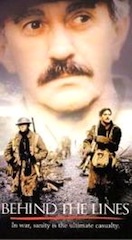
| |
Director: Gillies MacKinnon, 1998
Set in 1917 in an army sanitarium in Scotland, this film focuses on the psychiatric
treatment of shell-shocked soldiers from the Western Front. The patients being treated
range from the catatonic, amnesiac, and deranged to sane war heroes like the poet Siegfried
Sassoon who is being punished for his anti-war pamphlets. A moving film with dialogue
interspersed with voiced-over selections from the best-known verses of the British War Poets. Based
on Pat Barker's 1991 novel and true events.
© Lions Gate
|
|
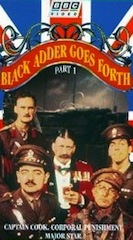
| |
Director: Richard Boden, 1989
The fourth and final season of the BBC historical sitcom Black Adder is set in 1917 on the Western Front. This is a somewhat dark subject for a comedy and was a risky project for all involved. Yet the series succeeds in using humor to underscore the terrible conditions of the trenches, stunning incompetence of the leadership, and futile loss of life among the men. The final episode is particularly moving and gives a good sense of how the British view this war.
© BBC
|
|
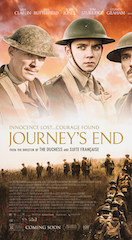
| |
Director: Saul Dibb, 2017
In March 1918 in Saint-Quentin, Aisne, a young infantry officer, Lt. Raleigh, arrives in the trenches fresh from training and eager to serve under his company commander and former schoolmate, Capt. Stanhope, a war weary veteran suffering the mental strain of his experiences and responsibilities. The story plays out in the officers' dugout over four days during the run-up to "Operation Michael," a major German offensive launched from the Hindenburg Line. Based on the 1928 play by R.C. Sherriff.
© Lionsgate
|
|
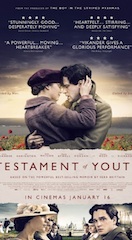
| |
Director: James Kent, 2014
A coming-of-age story about Vera Brittain, an Oxford student and aspiring young writer, in the years before and during the First World War. As her brother, fiancé, and male schoolmates go off to fight, Vera joins the VAD (Volunteer Aid Detachment) and serves as a nurse in London, France, and Malta. The story follows Vera’s transformation as she and her generation move gradually from a life of comfort and privilege to one of hardship and sacrifice. Based on Brittain's acclaimed memoir from 1933.
© BBC Films
|
|
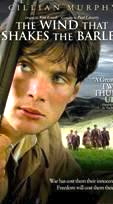
| |
Director: Ken Loach, 2006
In 1919, Irish volunteers wage a guerrilla campaign
against the ruthless "Black and Tan" paramilitary squads arriving from Britain
to block Ireland's bid for independence. Driven by a deep sense of duty and love of
country, Damien abandons a promising career as a doctor and joins his brother,
Teddy, in this dangerous and violent struggle. Their victory is followed in 1922 by the
Irish Civil War that pits these same comrades against each other. The title comes from a famous Irish ballad. This film won the Palme d'Or at the 2006 Cannes Film Festival.
© Sixteen Films
|
|
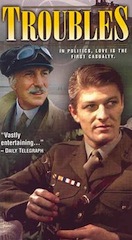
| |
Director: Christopher Morahan, 1988
In 1919, Major Brendan Archer arrives in Ireland to reunite with his Anglo-Irish Protestant fiancée, Angela Spencer. Unfortunately, the Spencer family home, the Majestic Hotel on the Wexford coast, is a decaying shadow of its former self, as is Angela. Archer's attentions are soon drawn to her lively friend, Sarah Devlin, a passionate Irish nationalist. They fall in love, but Archer discovers some disturbing aspects about their relationship. Based on the 1970 novel by J.G. Farrell. © BFS Entertainment
|
|
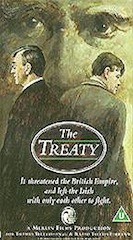
| |
Director: Jonathan Lewis, 1992
This TV movie, produced for RTÉ, focuses on the painstaking negotiations in late 1921 between the provisional government of the Irish Republic and representatives of the British Government under David Lloyd George. An intelligent and even-handed film about a controversial moment in Irish political history that ended the Anglo-Irish War but split the republican movement and led to the Irish Civil War.
© RTÉ Films
|
|
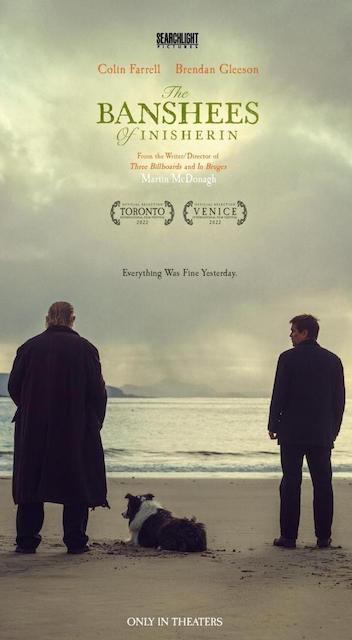
| |
Director: Martin McDonagh, 2022
Set on the fictional island of Inisherin off the west coast of Ireland at the tail end
of the Irish Civil War, this film tells the story of two lifelong friends who find
themselves at an impasse when one abruptly ends their relationship, with alarming
consequences for both of them. A thoughtful study of male friendship, anger, and
loneliness in rural Irish culture.
© Searchlight Pictures
|
|
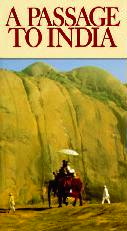
| |
Director: David Lean, 1984
Tensions between Indians and the colonial British residents of the town of Chandrapore boil over
when a visiting Englishwoman, Adela Quested, accuses a young Indian physician, Dr. Aziz, of rape
during a tour of the local caverns. Based on E.M. Forster's 1924 novel, this film can be seen as
a study of colonial relations, perceived differences between East and West, and the nature of memory
and friendship.
© Columbia/TriStar
|
|
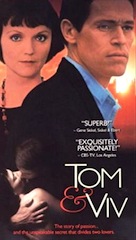
| |
Director: Brian Gilbert, 1994
The troubled marriage between the Anglo-American poet T.S. Eliot (Tom) and Vivienne
Haigh-Wood (Viv) is the subject of this finely acted film. Plagued with numerous
physical and mental debilitations, Viv is eventually committed to an asylum. The
tragic relationship between Tom & Viv is set against the rise of Eliot's poetic
career and the reactions of the literary elite in Edwardian and interwar Britain.
© Miramax
|
|
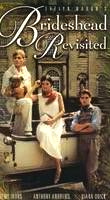
| |
Director: Michael Lindsay-Hogg, 1981
Based on Evelyn Waugh's classic novel from 1945, this miniseries provides a vivid glimpse into the young lives of the "lost generation" of interwar Britain. Ranging from the early 1920s to the mid 1940s, the story is an elegy to youth and idyllic student days and the fading world of the Anglo-Catholic aristocracy. Brilliantly acted and beautifully filmed at Castle Howard in Yorkshire, this series is considered by many to be among the best ever film or television adaptations of a literary work. © Acorn Media
|
|
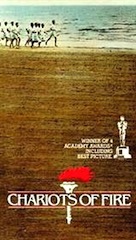
| |
Director: Hugh Hudson, 1981
The plot of this Academy Award winning film follows an unlikely pair
of young athletes representing Britain as sprinters in the 1924
Paris Olympics. Eric is a Scottish divinity student whose running
makes him feel closer to God. Harold, a Jew, is a highly competitive
Cambridge student struggling to overcome institutional hurdles of
class prejudice and anti-Semitism.
© Warner Home Video
|
|
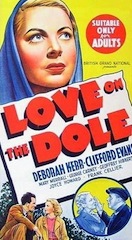
| |
Director: John Baxter, 1941
This film, based on the 1933 novel by William Greenwood, is set in an industrial slum in Salford and follows the travails of the Hardcastle family as they endure the crises of mass unemployment and tumultuous labor agitation in the 1930s. Throughout that decade, British film censors refused to allow a film to be made based on this book because of its controversial subject matter. It was finally produced in 1941, but by then war had dramatically changed the social conditions and employment situation throughout Britain.
© United Artists
|
|
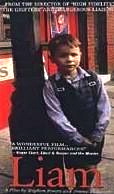
| |
Director: Stephen Frears, 2000
When Liam's father loses his job during the Depression, the
family struggles to hold things together and everyone deals with the
hardship in his or her own way. Liam's dad joins the fascists, his
brother attends secret meetings of the socialists, and his sister
goes to work as a housekeeper for a wealthy Jewish family, while
Liam searches for answers in Catholicism. An unsentimental and
provocative portrayal of working-class life and the tumultuous
politics of 1930s Britain.
© Lions Gate
|
|
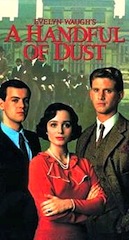
| |
Director: Charles Sturridge, 1988
This adaptation of Evelyn Waugh's 1934 satirical novel tells the story of Tony and
Brenda Last, an upper-class couple living on their country estate. Tired with their
predictable and tedious social circuit, Brenda has an affair with a shallow and
parasitic social climber who has befriended the couple. The film remains faithful
to Waugh’s vision of upper-class tradition and gentility swept away by the avaricious
demands of the rising middle classes.
© New Line Cinema
|
|
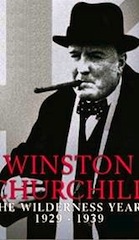
| |
Director: Ferdinand Fairfax, 1981
This miniseries covers the decade of political exile in the career of Winston
Churchill—a period he described as the most difficult of his life. When Churchill lost
his cabinet post in 1929, most political observers thought his career was over.
Yet the next decade would see the evolution of Churchill's maverick style of leadership
as a defender of the British Empire, an opponent of appeasement, and eventually as a
wartime prime minister. Starring Robert Hardy as Churchill.
© Wellspring Media Inc.
|
|
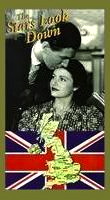
| |
Director: Carol Reed, 1939
Davey Fenwick leaves his Northumberland mining village on a university scholarship and is
intent upon becoming an activist for the nationalization of Britain's mines. Instead he returns
home before finishing his degree and takes up work as a local schoolteacher. He soon
finds himself uncomfortable in this role and when he learns that his father and the
other miners are being coerced to work on a potentially deadly coal seam he decides to act.
Based on the 1935 novel by A.J. Cronin. © Grand National Pictures
|
|
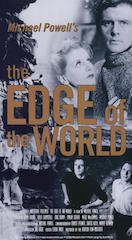
| |
Director: Michael Powell, 1937
In a remote fishing village on the Outer Hebrides island of Hirta a traditional way of life is dying. Large trawlers from the mainland threaten its economic survival and, one by one, the younger generation leaves for greater opportunities in the outside world. This was the first major film by the legendary English director Michael Powell and was filmed on location on the Hebridean island of St. Kilda at a time when studio sets in moviemaking were still the norm.
© BFI
|
|
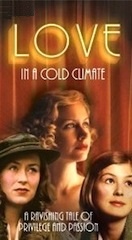
| |
Director: Tom Hooper, 2001
Three young aristocratic women—Linda, Polly and Fanny—confront family politics and social convention in their search for love and marriage. This series oscillates between comedy and drama and is unsparing in its portrayal of the snobbish and socially suffocating attitudes of the English upper classes in the interwar years. Based on the novels by Nancy Mitford, the series was filmed at several English country homes including the Mitfords’ estate in Gloucestershire.
© Acorn Media
|
|
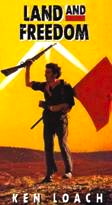
| |
Director: Ken Loach, 1995
David, a young unemployed communist, leaves his hometown Liverpool in 1936
to join the struggle against fascism in Spain. He fights with the POUM, an international
militia of Marxists, and after being wounded goes to Barcelona. There he grows
disillusioned as he witnesses infighting and power struggles among the various
anti-fascist groups. The story is very similar to the real-life experience of
Eric Blair (George Orwell) described in Homage to Catalonia (1938).
© Lions Gate
|
|
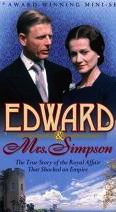
| |
Director: Waris Hussein, 1981
While still Prince of Wales, the future Edward VIII meets the married
American socialite, Wallis Simpson. Their relationship causes an uproar
in the palace and Parliament. When King George V dies in 1936, Mrs.
Simpson gets divorced and King Edward announces his intentions to marry
her. Produced in 1981, this miniseries coincided with the royal wedding
of Charles and Diana and the revived public interest in the monarchy's past.
© Thames Television
|
|
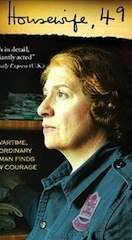
| |
Director: Gavin Millar, 2006
In the late 1930s, Nella Last, a housewife aged 49 living on the Northwest English coast, agrees to send the details of her daily routine to Mass Observation, a non-governmental project that chronicles the lives of ordinary Britons. When war comes in 1939, Nella defies her over-protective husband to join the local Women's Voluntary Service. Initially diffident, she blossoms amid her independence as a useful war worker.
© Acorn Media
|
|
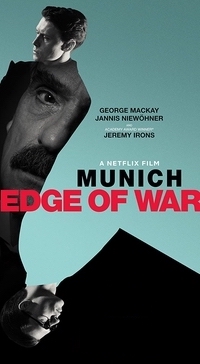
| |
Director: Christian Schwochow, 2021
In 1938 Europe stands on the brink of war. Hitler is preparing to invade Czechoslovakia and Neville Chamberlain's government desperately seeks a peaceful solution. As pressure builds, Hugh Legat, a British civil servant, and Paul von Hartmann, a German diplomat, travel to Munich for the emergency conference. Amid the negotiations, the two old classmates find themselves at the center of a web of political subterfuge and danger. Based on the 2017 novel by Robert Harris.
© Netflix
|
|
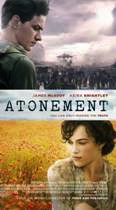
| |
Director: Joe Wright, 2007
In 1935, as the shadow of war looms over Europe, 13-year-old Briony Tallis
and her family are enjoying the summer on their English estate. When she
observes a flirtation between a servant's son and her older sister—that she
childishly misconstrues—Briony's misunderstanding leads to a terrible crime
whose consequences follow them through World War II. A powerful story about
personal history and memory in one of Britain's most anxious periods. Based
on the best-selling 2001 novel by Ian McEwan. © Universal
|
|
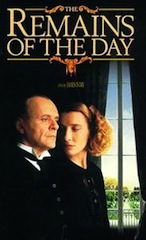
| |
Director: James Ivory, 1993
Mr. Stevens is a dedicated English butler dedicated
to serving his aristocratic employer, Lord Darlington, during the late 1930s—the time
of appeasement and growing tensions on European continent. In his single-minded devotion,
Stevens sacrifices the most basic human intimacy in his dealings with the housekeeper, Miss
Kenton, and also fails to see the naïve and destructive Nazi sympathies of Darlington until
it is too late. Based on the 1989 novel by Kazuo Ishiguro.
© Columbia/TriStar
|
|
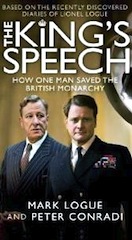
| |
Director: Tom Hooper, 2010
When Edward VIII abdicated the throne in 1936, his younger brother George ("Bertie")
became king. As a younger son, Bertie had never been groomed to be monarch and, with
his awkward manner and dreadful stutter, was considered by many to be unfit to be king.
This film focuses on the king's friendship with his unorthodox speech therapist, Lionel
Logue, and the improvement in his speech that enabled George VI to become an effective
wartime ruler.
© See Saw Films
|
|
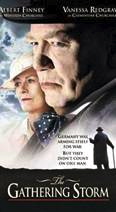
| |
Director: Richard Loncraine, 2002
An intimate look inside the marriage of Winston and Clementine Churchill during a particularly
troubled, though little-known, period in their lives. In the late 1930s, Churchill found himself
on the fringe of British politics: a lone voice warning his country and the world of the Nazi
threat. Together with Clementine, he had to confront the personal demons of depression and
the specter of insolvency before he could emerge as a reinvigorated wartime political leader.
Starring Albert Finney as Churchill. © HBO Films
|
|
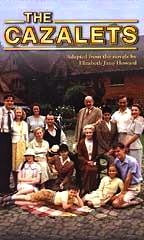
| |
Director: Suri Krishnamma, 2001
This miniseries is a stunning and powerful drama of a large, disparate, and privileged
English family transformed by the tumultuous times in which they live. Based on the
popular novels of Elizabeth Jane Howard, the story is set between 1937 and 1947,
against a backdrop of war and a veneer of upper-class restraint and respectability.
© WGBH
|
|
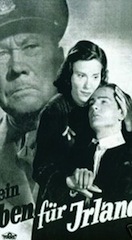
| |
Director: Max W. Kimmich, 1941
This Nazi propaganda film from 1941 tells the story of the O'Brien family and of their heroism and martyrdom over two generations as their country suffered under the oppressive rule of Britain. Produced for Nazi-occupied Europe, the film was intended to challenge pro-British allegiances, but in some cases it had the unintended consequence of making audiences identify the Irish struggle with their own resistance against the Nazis. The film itself is a fascinating historical document about the manipulation of Irish politics and anti-British attitudes.
© IHF
|
|
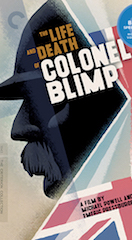
| |
Directors: Michael Powell and Emeric Pressburger, 1943
This film chronicles the life and relationships of Gen. Clive Wynne-Candy, VC, an
upper-class British Army officer, from his youth during the Boer War until his being
called out of retirement to lead the Home Guard during the Second World War. The
film was so controversial that Churchill and the War Office both tried unsuccessfully
to prevent its release, claiming that the satirizing of martial honor and the
sympathetic portrayal of Germans would undermine British wartime propaganda. © Criterion
|
|
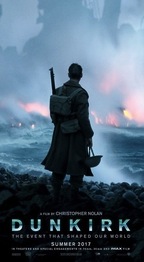
| |
Director: Christopher Nolan, 2017
When Germany invaded France in 1940, British and French troops were routed from their positions and forced to retreat to the coastal town of Dunkirk across the channel from England. This film retells the familiar story of how over 300,000 Allied troops were rescued by a hastily assembled flotilla of hundreds of ships and small boats. The Dunkirk evacuation was a tactical victory but one that awakened Britain to the might of the German war machine and the vulnerability of their nation to invasion. © Warner Bros.
|
|
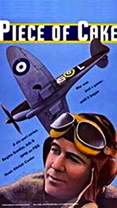
| |
Director: Ian Toynton, 1988
This miniseries tells the story of "Hornet Squadron," RAF fighter pilots dispatched to France
at the outbreak of war in 1939. A thoughtful presentation of the air war since less of the story
takes place during the famed Battle of Britain in the summer of 1940 and more in the "Phony War"
that preceded it. Excellent aerial photography and a compelling storyline with good character
development. Based on the 1983 novel by Derek Robinson.
© BFS Entertainment
|
|
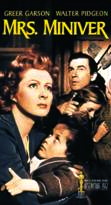
| |
Director: William Wyler, 1942
Kay Miniver is a typical English upper-middle class housewife. Her daily life is devoted to her
family and lighthearted activities but as war arrives they take a darker turn. Soon Mrs.
Miniver's routine includes fitting her children for gasmasks and waiting out air raids in
the family’s Anderson shelter. This film won six Academy Awards including Best Picture and
many credit the popular 1940 novel on which it was based with helping turn American public
opinion away from neutrality in favor of Britain.
© Warner Home Video
|
|
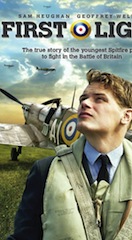
| |
Director: Matthew Whiteman, 2010
This docudrama follows the experiences of 19-year old Geoffrey Wellum as he joins RAF 92
Squadron and is soon piloting a Spitfire in the skies over England. Though he is
awarded a Distinguished Flying Cross, the months of harrowing air battles and the stress
of seeing close comrades die take their toll and Wellum is invalided out of 92 Squadron
after a nervous breakdown. Produced by BBC for the seventieth anniversary of the Battle
of Britain, the film is narrated by Wellum and based on his 2002 memoir.
© BBC Films
|
|
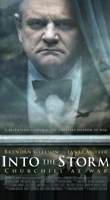
| |
Director: Thaddeus O'Sullivan, 2009
Continuing the storyline begun in The Gathering Storm, this film is set against the backdrop
of the Second World War, and offers a compelling portrait of Britain's wartime prime minister.
Churchill's dogged determination and charisma as a leader rallied the nation but ultimately
undermined his political career and threatened his relationship with his most loyal supporter, his
wife Clementine. Starring Brendan Gleeson as Churchill.
© HBO Films
|
|
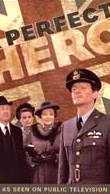
| |
Director: James Cellan Jones, 1991
This television series follows the experience of RAF fighter pilot Hugh Fleming who
is left horribly disfigured from burns suffered when his plane is shot down during the
Battle of Britain. As plastic surgeons labor to minimize the damage of his painful and
gruesome injuries, Fleming transforms from an arrogant and callow youth into a man of
character and wisdom, but less than the perfect hero that he and his wounded comrades are
made out to be.
© Havahall Pictures
|
|
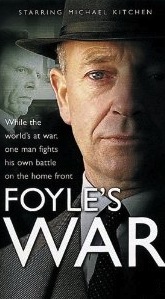
| |
Creator: Anthony Horowitz, 2002
This acclaimed TV series is set during and after the Second World War in Hastings, Sussex, where police superintendent Christopher Foyle attempts to catch criminals taking advantage of the confusion of war. Amid a fully mobilized society and with battles raging daily in the skies above England, Foyle fights his own war investigating murder, theft, black-marketeering and fraud. The series has been praised for its attention to historical detail and for confronting many of the myths about British society on the home front during the war. © Acorn Media
|
|
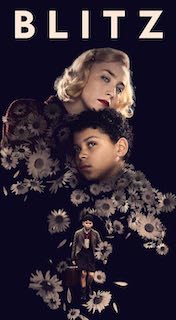
| |
Director: Steve McQueen, 2024
George, a nine-year-old London boy, is sent by his mother to the countryside for safety during World War II. He defiantly tries to return to his home in the East End only to find himself in immense peril, while his distraught mother searches for her missing son. A devastating portrayal of the terror and hope experienced by Londoners during the Blitz, the sustained German night bombing campaign in 1940-41 that killed over 40,000 civilians and damaged much of the city.
© Apple Studios
|
|
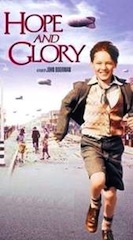
| |
Director: John Boorman, 1987
A comic and poignant story of the Battle of Britain and the London Blitz as seen through the eyes of Bill Rohan, a seven-year-old boy stuck at home with his mother, aunts, and bratty sisters while Britain's fight for national survival is raging all around him. During this time Bill learns much about sex, death, love, hypocrisy, and the faults of adults as he plays in the ruins of bombed houses on his London street. Based on director John Boorman’s own childhood experiences during the war. © MGM/UA
|
|
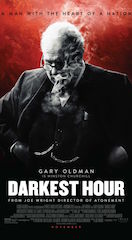
| |
Director: Joe Wright, 2017
In May 1940, amid seemingly unstoppable German military conquests in Europe, Conservative MP Winston Churchill steps up to replace Neville Chamberlain as Britain's Prime Minister. With the fate of his nation hanging in the balance, Churchill and his government face either negotiating with Hitler or bracing the British people to fight on against incredible odds. Starring Gary Oldman as Churchill.
© Focus Features
|
|
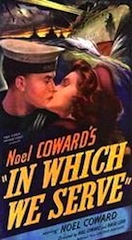
| |
Directors: Noel Coward and David Lean, 1942
Released in 1942, this film is more than mere propaganda about naval heroism; it is a window into the values and vulnerability of wartime Britain. Life aboard the destroyer HMS Torrin and among the families back home reveal a society ordered by class and tradition in which hardship is borne stoically and with quiet forbearance while sacrifice and devotion to duty remain the highest virtues. Written and directed by Noel Coward, the film is supposedly based on Lord Mountbatten's naval exploits. © Westlake Video
|
|
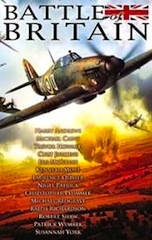
| |
Director: Guy Hamilton, 1969
This World War II epic recounts the heroic efforts of the Spitfire and
Hurricane pilots of RAF Fighter Command who defended the skies over Britain in the summer of 1940.
Their actions ultimately prevented a German invasion of the country. This film, with its
all-star cast and spectacular aerial battle scenes, remains a popular tribute
to "the few" who saved Britain.
© MGM/UA
|
|
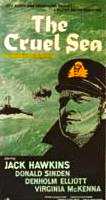
| |
Director: Charles Frend, 1953
At the start of the war, Cdr. George Ericson is given command of the corvette HMS Compass
Rose and ordered to undertake convoy escort duty with officers and men just out of training
and who have no experience at sea. The film captures well the constant danger, privation, boredom, and grim humor of
sailors during the Battle of the Atlantic, one of the most critical theatres of war in Britain's
struggle for survival. Based on the 1951 novel by Nicholas Monsarrat.
© Anchor Bay Entertainment
|
|
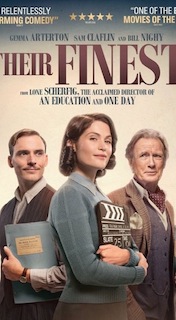
| |
Director: Lone Scherfig, 2017
In 1940, Catrin Cole, a secretary, is hired by the Ministry of Information as a scriptwriter for films meant to boost the morale of British cinema goers and sway public opinion in America to support Britain in the war against Germany. A compelling look at the daily hardships and fearful uncertainty endured by the British people during the Blitz and the considerable propaganda value of the wartime film industry.
Based on the 2009 novel by Lissa Evans.
© BBC Films
|
|
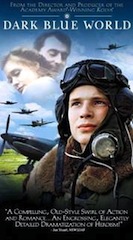
| |
Director: Jan Sverák, 2001
A group of Czech air force pilots flee their
homeland after German occupation in 1939 and are formed into their own Spitfire squadron by the
RAF to fight their mutual enemy in the skies over Britain. This beautiful film brings into sharp focus the rarely
told story of the hundreds of foreign airmen who participated in the Battle of Britain
and of their interactions with English civilians. At the time it was produced, Dark Blue
World was the most expensive Czech film ever made.
© Columbia/TriStar
|
|
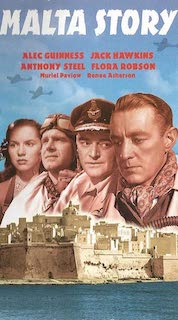
| |
Director: Brian Desmond Hurst, 1953
This film focuses on the heroic defense of Malta, Britain's vital fortress colony in the
Mediterranean, during the Second World War. While the plot follows the exploits of a
British reconnaissance pilot stationed on the island and his romance with a young Maltese
woman, much attention is given to the courage of the Maltese people themselves in successfully withstanding
one of the longest and most destructive bombardment campaigns of the war.
© MGM/UA
|
|
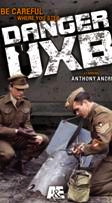
| |
Director: John Hawkesworth, 1979
Lt. Brian Ash, a young officer in the Royal Engineers during the early days of the war,
is assigned to a UXB ("unexploded bomb") unit. At the height of the Blitz, Ash and his men
work courageously to deactivate German aerial bombs that have failed to detonate but which occasionally
have time-delay fuses specifically designed to kill UXB men. The plot of this miniseries focuses on
Ash's maturation as an officer and reveals the strain in wartime Britain that was endured by civilians and
the military alike. © ITV Films
|
|
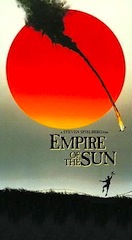
| |
Director: Steven Spielberg, 1987
Jamie Graham is an upper-class English schoolboy separated from his family
after the Japanese Army invades the British sector of the international
settlement in Shanghai in December 1941. Reduced to living on the street
and fighting for food, he is eventually interned in a Japanese POW camp for
British civilians. Amid sickness and food shortages in the camp, Jamie
attempts to reconstruct his former life. Based on the 1984 autobiographical
novel by J.G. Ballard.
© Warner Home Video
|
|
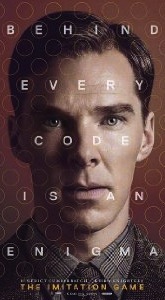
| |
Director: Morten Tyldum, 2014
The true story of Alan Turing, a Cambridge mathematician and legendary cryptanalyst, who led a
brilliant team of code-breakers at Britain's top-secret Government Code and Cypher School at
Bletchley Park during the Second World War. Turing's genius was instrumental in breaking
Germany’s "Enigma" code and giving Britain a critical military advantage during the war.
Afterwards he went on to be a pioneer in computer science and artificial intelligence.
© Black Bear Pictures
|
|
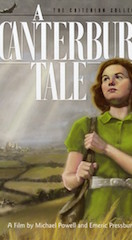
| |
Directors: Michael Powell and Emeric Pressburger, 1944
An American GI, a British tommy, and a "land girl" find themselves together in Chillingbourne, a small Kentish town on the road to Canterbury. The trio attempt to track down a local prankster and begin to suspect the town magistrate, an eccentric figure with a strange, mystical vision of the history of England in general and Canterbury in particular. An odd and complex film that is at once a mystery, a wartime drama, a paean to rural England, and an imaginative remake of Chaucer's classic pilgrimage tale.
© Criterion
|
|
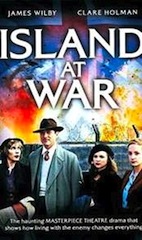
| |
Director: Stephen Mallatratt, 2004
This miniseries offers a riveting view of the German invasion and occupation of the Channel
Islands—the only part of the British Isles that fell under German control during the Second
World War—and how life changed overnight for the small community of British inhabitants. The
experience of the Channel Islanders gives a glimpse of what might have happened to Britain if
the Germans had succeeded in a larger cross-channel invasion.
© Acorn Media
|
|
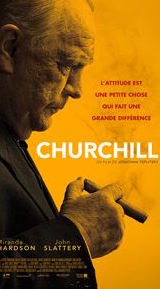
| |
Director: Jonathan Teplitzky, 2017
In June 1944, days before the Allied invasion of Normandy, Winston Churchill expresses strong reservations about the plan because of his memory and lingering feelings of guilt over the failed Gallipoli landings in the First World War, for which he was responsible. He is also frustrated at being sidelined in the leadership of the military campaign by Supreme Allied Commander General Dwight Eisenhower and British Field Marshal Bernard Montgomery. Starring Brian Cox as Churchill. © Lionsgate
|
|
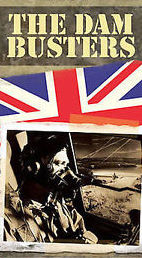
| |
Director: Michael Anderson, 1954
Considered a classic of British cinema, this film tells the true story of
the daring plan to bomb the dams of the Ruhr Valley at the heart
of German industry. The story begins with Dr. Barnes Wallis and the innovative
but difficult development of his "bouncing bomb". After intensive pilot
training and practice runs, these bombs were delivered by a squadron of
specially modified Lancaster bombers led by RAF Wing Commander Guy Gibson VC in
one of the most dangerous missions of the war.
© Anchor Bay Entertainment
|
|
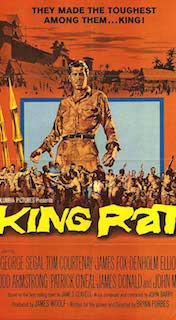
| |
Director: Bryan Forbes, 1965
In the Changi POW camp in Singapore life is a living hell for the Allied
prisoners. While the men barely survive in a sub-human existence, an
enterprising and cynical American corporal, "King Rat", controls the camp's
black market and makes deals with the Japanese guards. The story follows his
interaction with two British officers: Lt. Marlowe, a genteel upper-class
soldier, and Lt. Grey, the camp provost and a humorless and moralizing
prig. Based on the 1962 debut novel by former POW James Clavell. © Sony Pictures
|
|
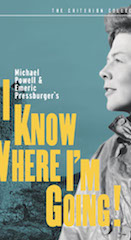
| |
Directors: Michael Powell and Emeric Pressburger, 1945
Joan Webster, a young, middle-class Englishwoman with an ambitious and independent spirit, knows where she's going, or at least she thinks she does. She travels from her home in Manchester to Kiloran, a fictitious island in the Outer Hebrides of Scotland to marry a wealthy, middle-aged industrialist. Stranded by stormy weather, Joan meets a handsome naval officer who threatens to upend her carefully laid-out life plans.
© Criterion
|
|
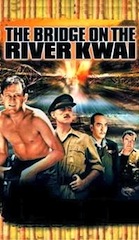
| |
Director: David Lean, 1957
During the Second World War, British, Australian, Dutch and American POWs are given the task,
by their Japanese captors, of building a railway bridge in the harsh Southeast Asian
jungle. Led by Colonel Nicholson, a stereotypically reserved and stoical English officer, the
prisoners score a moral victory over the Japanese by not only building the bridge,
but running the whole show. Based on the 1952 novel by Pierre Boulle.
© Columbia/TriStar
|
|
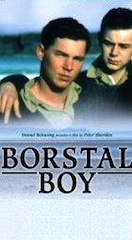
| |
Director: Peter Sheridan, 2000
In 1942, Brendan Behan, the acclaimed Irish dramatist, is sixteen years old and
headed to Liverpool on an IRA bombing mission. The mission is thwarted and he
is convicted and imprisoned in Borstal, a reformatory for young offenders
in East Anglia. There Brendan is forced to live and work side-by-side with those
he perceives as the enemy—a confrontation that reveals a deep inner conflict in
the young man and forces a difficult self-examination. Based on Behan's 1958
autobiographical novel. © Strand Releasing
|
|
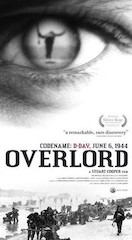
| |
Director: Stuart Cooper, 1975
Beginning with a premonition of his death, this film follows young Thomas Beddows through his call up to the East Yorkshire Regiment, his training, his fleeting romance with a young Englishwomen, his journey to France, and his death on D-Day at Sword Beach. Images of army training, the London Blitz and RAF bombing of Europe emphasize the events leading up to the invasion and the sense of anticipation and foreboding experienced by British soldiers. Filmed in black and white and interpersed with archival film footage from the Imperial War Museums. © Criterion
|
|
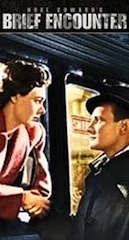
| |
Director: David Lean, 1945
This is the story of a chaste but deeply passionate affair that develops between two
middle-aged married people who meet by chance in a railway station café. After much
agonizing they reach the painful realization that their love is an impossibility given
their social and family responsibilities. The film offers a good view of the austerity
and morality of wartime Britain and is considered to be one of the finest romances
produced by the British film industry. Based on the 1936 play by Noel Coward.
© Criterion
|
|
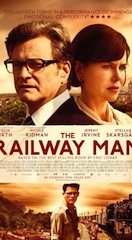
| |
Director: Jonathan Teplitzsky, 2013
The true story of Eric Lomax, a British soldier who becomes a POW of the Japanese after the fall of Singapore in February 1942. Forced to work building the infamous "death railway" in Southeast Asia, Lomax suffers gruesome torture at the hands of his Japanese captors. He survives the experience but is left deeply traumatized. Decades later he sets out to confront the man responsible for his ordeal. A moving film based on Lomax’s 1995 memoir.
© Lions Gate
|
|
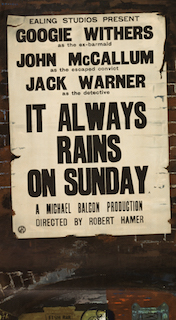
| |
Director:
Robert Hamer, 1947
In this noirish and unsentimental story, an escaped convict tries to hide out at his former lover's house, but she has since married and is reluctant to help him. This film, released by Ealing Studios two years after the end of the war and set in Bethnal Green in London's war-ravaged East End, captures well the frustration and material privation of postwar austerity. This slice-of-life drama was popular among audiences upon its release and has since become one of the most acclaimed films of postwar British cinema.
© BFI
|
|
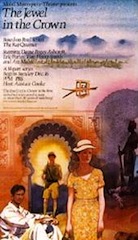
| |
Director: Christopher Morahan, 1984
This fourteen-part miniseries originally produced for Granada
Television in Britain tells the story of a small group of Britons
and Indians from the middle of the Second World War to the independence
of India and Pakistan in 1947. The historical authenticity of the plot
and complex characters provide an excellent glimpse into the psyche
of the British in India during the final days of the "Raj." Based on
Paul Scott's Raj Quartet novels published between 1965 and 1975.
© A&E Home Entertainment
|
|
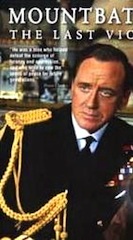
| |
Director: Tom Clegg, 1986
This TV miniseries traces
the events and experiences of the last viceroy of India, Lord Louis
Mountbatten, and his wife Lady Edwina. In early 1947, Mountbatten arrived in India
to oversee the transfer of power to independent India and Pakistan.
The film captures well the challenges, dilemmas, and tragedies
involved in the British withdrawal and the partition of the Indian subcontinent.
© Bonneville Video
|
|
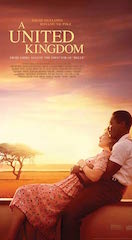
| |
Director: Amma Asante, 2016
In 1947, Seretse Khama, a law student in London and the crown prince of the Protectorate of Bechuanaland (present-day Botswana), meets and marries Ruth Williams, an English clerk. The marriage offends racial sensibilities in both families and threatens Khama's claim to the throne. The couple face enormous stress on their relationship and family life as they maneuver diplomatically with British colonial officials eager to placate the racism of neighboring South Africa while maintaining control over Bechuanaland's vast mineral resources. © Pathé
|
|
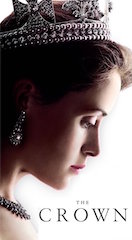
| |
Creator: Philip Morgan, 2016
This television series portrays Queen Elizabeth II from her wedding as crown princess in 1947 through her accession to the throne, her coronation, and the first four decades of her reign. Events in the life of the royal family are set against the many political and social changes of postwar Britain. Reception to the series was overwhelmingly positive, with critics praising cast performances and the accurate historical representation of Elizabeth's reign, but there was some criticism of the portrayal of the personalities of key figures.
© Netflix
|
|
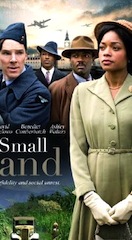
| |
Director: John Alexander, 2009
Born into a broken home and an impoverished life in colonial Jamaica, Hortense longs
for a fulfilling life in England. During World War II the opportunity arises and a
newly-married Hortense and her husband are soon on their way to the promised land of
postwar Britain. The immigrant couple's dreams are soon tested by the harsh realities of
racism and poverty in the heart of a declining empire. Based on the 2004 novel by Andrea Levy.
© Ruby Television for BBC
|
|
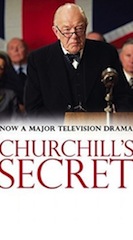
| |
Director: Charles Sturridge, 2016
In 1953 Winston Churchill, age 78, suffers a severe stroke eighteen months into his second term as prime minister. He is confined to his rural home and his condition is kept secret from the public and his political adversaries. This TV drama focuses on Churchill's illness, his strained relationship with his wife and children, and his friendship with the nurse who aids him in his recovery. Starring Michael Gambon as Churchill and based on the 2015 novel by Jonathan Smith.
© Daybreak Pictures
|
|
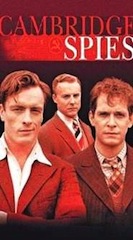
| |
Director: Peter Moffat, 2003
In 1934, four brilliant, upper-class students at Trinity College, Cambridge were recruited
to spy for the Soviet Union. Fueled by youthful idealism, a passion for social justice, a
talent for lying, and a hatred for fascism, the four took huge personal risks in their later
careers to pass on Britain's most sensitive secrets to Moscow. This series offers a compelling
and intimate look at one of Britain's most notorious spy cases as well as the elitism and
social privilege that placed the men themselves above suspicion.
© BBC Films
|
|
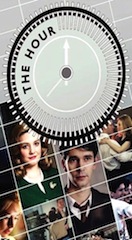
| |
Directors: Harry Bradbeer, Coky Giedroyc, Jamie Payne, 2011
This British television series offers a behind-the-scenes drama and espionage thriller about a TV news and current affairs program launched by the BBC in 1956 shortly before the Suez crisis. The series has received mixed reviews, but most critics have been impressed by the attention to historical detail. An evocative recreation of the style and attitudes of metropolitan Britain during the Cold War and the end of the British Empire.
© BBC Films
|
|
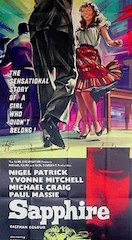
| |
Director: Basil Dearden, 1959
In 1950s London, racial hostility toward black immigrants from the Commonweath is openly displayed. A pregnant girl, initially assumed to be white, is found murdered on Hampstead Heath. As the two Met detectives investigating the case discover that the victim's racial origins were mixed, public prejudices and those of the officers themselves are exposed. A daring look at British attitudes toward race in a postwar society that was becoming increasingly multiracial.
© Criterion
|
|
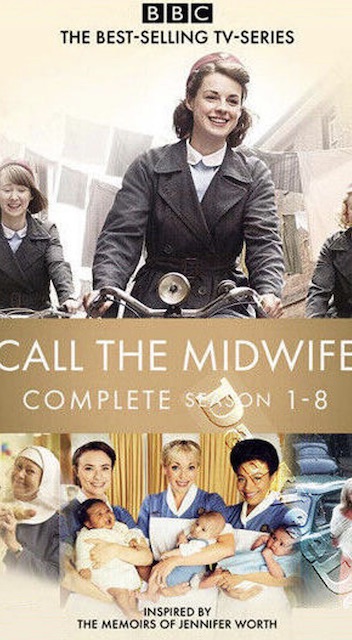
| |
Creator: Heidi Thomas, 2012
This long-running British television drama tells the story of a group of nurse midwives working
in the East End of London from the late 1950s into the 1970s. The series has been popular with
audiences and critically acclaimed for its historical accuracy in portraying postwar British
society and for drawing attention to social issues such as poverty, the challenges of
nationalized health care (particularly for women), unwanted pregnancies, race relations,
and the importance of local communities.
© BBC One
|
|
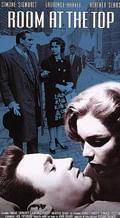
| |
Director: Jack Clayton, 1959
John Lampton is an ambitious man of working-class origin employed in a dreary company town in postwar
North England. Intelligent and hardworking, he is deeply resentful of class prejudice
and eager to climb to the top in his company and in society. Along the way he has a relationship
with an older French woman who helps him polish his image, but then abandons her to marry the boss's
daughter. A bitter critique of the soulless pursuit of wealth and prestige.
Based on the 1957 novel by John Braine. © VCI Video
|
|
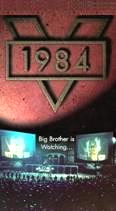
| |
Director: Michael Radford, 1984
In 1984 (the not-so-distant future) rocket bombs and rats prey
upon the metropolis of London, now the capital of the totalitarian state of Oceania.
Under the ceaseless gaze of "Big Brother," an anonymous drone in the Ministry of
Truth, Winston Smith, commits the crime of falling in love. Based on the 1948
masterpiece of literature and social commentary by George Orwell, this film—released
in the year of book's title and starring John Hurt as Smith—is considered by many to be the best screen adaptation. © Lions Gate
|
|
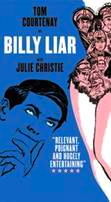
| |
Director: John Schlesinger, 1963
Billy Fisher is a lazy and irresponsible young clerk in a provincial North England town who
lives in a fantasy world and makes emotionally immature decisions that alienate his friends
and family. The social atmosphere of Britain in this period is well rendered with the
older wartime generation—represented by Billy's working-class parents—very much at odds
with what they see as a spoiled and decadent youth culture. Based on the 1960 play
by Willis Hall.
© Vic Films
|
|
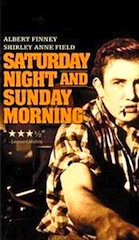
| |
Director: Karel Reisz, 1961
Throughout the 1950s, a group of young writers referred to as "Angry Young Men" excoriated
in their novels and plays what they perceived to be the dominant and superficial materialism
of postwar British society. This film is based on one such novel from 1958 by Alan Sillitoe that
focuses on a disillusioned factory worker in an English Midlands town who works all week
so that he can afford to drink and chase women on Saturday evenings.
© MGM/UA
|
|
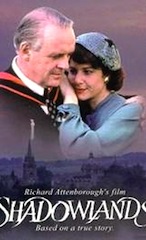
| |
Director: Richard Attenborough, 1993
This film is based on the real-life romance during the 1950s between the British
writer C.S. Lewis and divorced American poet Joy Gresham. Lewis is living
comfortably as a respected Oxford don, his scholarly lifestyle serving as a
shell protecting him from the emotional risk of love, when Gresham arrives
at the university. The safety of his academic routine is quickly disrupted
when Lewis realizes that he has fallen deeply and unexpectedly in love.
© HBO Films
|
|
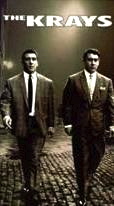
| |
Director: Peter Medak, 1990
A disturbing character study of the twins Ronnie and Reggie Kray, two of the most
notorious gangsters in British history. The plot follows the boys from their
working-class childhood in war-ravaged East London through their rise as young men
in the city's organized crime underworld during the heyday of the "swinging sixties."
The film focuses on the psychology of the men from their extreme violence to
the warm relationship they maintained with their doting mother. The Krays are still the subject
of much urban folklore in London. © Sony Pictures
|
|
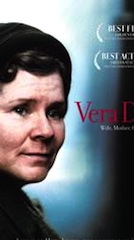
| |
Director: Mike Leigh, 2004
Vera Drake is completely devoted to, and loved by, her working class family. She spends
her days doting on them and caring for her sick neighbor and elderly mother. She also
secretly visits women and helps them induce miscarriages for unwanted pregnancies. The
practice was illegal in 1950s England and when the authorities finally find out what she
has been doing, Vera's world and family life rapidly unravel.
© Fine Line Features
|
|
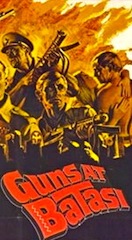
| |
Director: John Guillermin, 1964
Regimental Sergeant-Major Lauderdale is an old-school martinet assigned with other British NCOs and officers to a remote African outpost to train soldiers of a newly independent former colony (a thinly veiled Kenya). When a populist uprising overthrows the government, soldiers loyal to the new regime take over the barracks prompting a tense standoff with Lauderdale and his men. Released in 1964, at the height of decolonization, this film is a useful artifact of British feelings about the end of their empire. Based on the 1962 novel by Robert Holles.
© Twentieth Century Fox
|
|
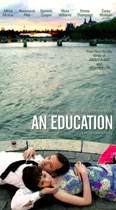
| |
Director: Lone Scherfig, 2009
In the early 1960s, Jenny Mellor is a gifted but socially awkward sixteen-year old
living with her parents in the London suburb of Twickenham. To fulfill her father's
wishes, everything she does is in the sole pursuit of being accepted into Oxford.
When she becomes involved with a dashing playboy nearly twice her age, she must
decide whether to embrace his glamorous but suspect lifestyle or continue with
her education. Based loosely on the 2009 memoir by journalist Lynn Barber. © BBC Films
|
|
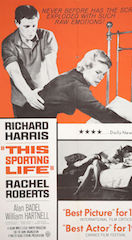
| |
Director: Lindsay Anderson, 1963
Frank Machin is a brutal and emotionally desensitized miner from North England who joins a local rugby league. The film oscillates between the physical violence of the rugby pitch and the emotional violence Frank inflicts on his widowed landlady and love interest. This Sporting Life was among the best of Britain's “kitchen sink” dramas—gritty and realistic films that captured the dark side of working class life and which were popular in the 1950s and 60s. Based on the 1960 novel by David Storey. © Criterion
|
|
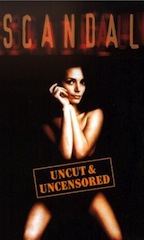
| |
Director: Michael Caton-Jones, 1989
The true story of the 1963 Profumo affair. John Profumo
was cabinet secretary for war in the Macmillan government when he met
a teenage cabaret dancer named Christine Keeler. Profumo and Keeler had an affair, and
the ensuing scandal caused him (after many strenous denials) eventually to resign. The Profumo
affair was a notorious event in its time and contributed to the defeat of the Conservatives in the 1964 general election.
© Anchor Bay Entertainment
|
|
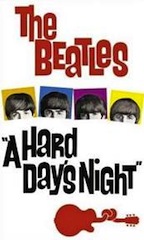
| |
Director: Richard Lester, 1964
The premise of this film is an exaggerated "day in the life" of the Liverpool music group,
The Beatles. The Fab Four travel from train to hotel to television studio with their road
crew while fleeing mobs of adoring fans and performing their hit songs. Nobody expected this first
movie by the group to be much more than the quick exploitation of a passing musical fad,
but when the film opened it immediately seduced the world and garnered two Academy Award
nominations.
© Miramax
|
|
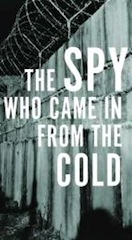
| |
Director: Martin Ritt, 1965
Alec Leamas is a burned-out, aging British spy recalled to service and sent to East
Germany supposedly to defect, but in fact to sow disinformation. Leamas soon becomes
convinced that his own agency sees him as expendable and is setting him up for a fall.
His struggle back from dehumanization is the final focus of the story. This film was based
on the popular Cold War thriller from 1963 by novelist John Le Carré and offers a gritty and
unsentimental glimpse into British espionage—a stark contrast to James Bond
fantasy.
© Paramount
|
|
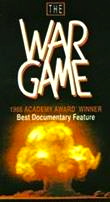
| |
Director: Peter Watkins, 1965
Originally produced as a docudrama for BBC television at the height of the Cold War,
The War Game remains one of the most controversial films in British history. It
graphically depicts the aftermath of a thermonuclear attack on Kent, England, and the
effect on public order and the private lives of individuals. For twenty years the film
was banned by the government as "too horrifying" for British audiences despite winning
the Academy Award for best documentary in the year of its release.
© New Yorker Films
|
|
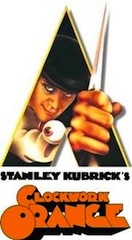
| |
Director: Stanley Kubrick, 1971
This shocking film depicts a futuristic Britain in which a gang of teenagers goes on the
rampage every night, beating, robbing, and raping helpless victims. After one of the boys is
arrested he submits to "aversion therapy" to shorten his jail sentence, but when he is
released, he finds that his new revulsion to violence leaves him ill-suited to function in
a deeply violent and dysfunctional society. A dark and satirical social commentary based
on Anthony Burgess' 1962 novel.
© Warner Home Video
|
|
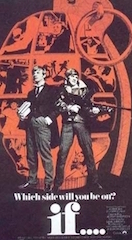
| |
Director: Lindsay Anderson, 1968
A daringly anarchic vision of British society, set in a boys boarding school in late-1960s England as seen through the eyes of Mick Travis, an insouciant and rebellious new student. Mick, along with his school chums, endures indignities and occasional abuse while flouting authority at every turn in a vicious cycle of one-upmanship played by students, prefects and masters. A wicked indictment of Britain's elite public school system and the ruling class that it incubates.
© Criterion
|
|
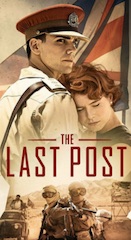
| |
Directors: Miranda Bowen and Jonny Campbell, 2017
In 1965, a detachment of the Royal Military Police keep an uneasy peace in the colony of Aden, an important military and naval outpost in Britain's declining postwar empire. This television series follows the professional and personal lives of the RMP men and their families as pan-Arab nationalists take up arms against British rule. The Aden Emergency resulted in the withdrawal of British forces at the end of 1967 followed by the independence of Yemen.
© BBC
|
|
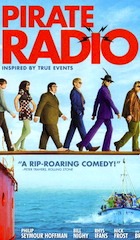
| |
Director: Richard Curtis, 2009
In the 1960s an unusual and colorful subculture grew from the upswing in British
pop music. Since BBC Radio devoted little airtime to rock & roll, small bands of
"pirate" radio enthusiasts began broadcasting 24 hours a day from boats just outside British
territorial waters. At their height, they reached an estimated 25 million listeners. This
film takes place aboard a rusty fishing trawler equipped to broadcast and staffed by a
motley crew of DJs. Released in Britain as The Boat that Rocked.
© Focus Features
|
|
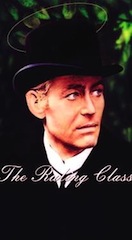
| |
Director: Peter Medak, 1972
An eccentric member of the House of Lords dies in a bizarre accident leaving his
estate to his son. Unfortunately, the son is insane and thinks he is, alternately,
Jesus Christ and Jack the Ripper. Nevertheless, he is compelled by his late father's
will to take up his role among the "ruling class" and assume the family seat in the
House of Lords. This dark comedy delivers a scathing
yet witty attack on
Britain's class system and its political and social
conceits.
© Criterion
|
|
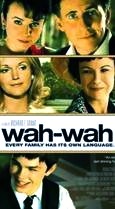
| |
Director: Richard E. Grant, 2005
Richard E. Grant's semi-autobiographical tale of his childhood in Swaziland in the
1960s during the last days of the British Empire in Africa. Grant relates the story
of Ralph Compton, a twelve-year-old English boy whose parents' traumatic separation
and family's disintegration reflect the end of British rule in the colony and the
uncertain future for colonial expatriates after independence.
© Scion Films
|
|
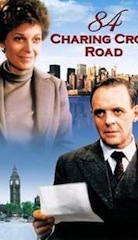
| |
Director: David Hugh Jones, 1987
The true story of the 20-year correspondence between Helene Hanff, a struggling New
York writer, and Frank Doel, an antiquarian bookseller in London. Their relationship begins when
Helene makes a mail order purchase of a few rare books from Frank. The two remain in contact
and over the years eventually develop a special friendship and mutual unspoken love without ever
having seen each other. Based on the 1970 book by Hanff.
© Columbia/TriStar
|
|
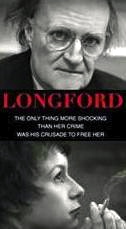
| |
Director: Tom Hooper, 2006
Originally produced for ITV, this film is inspired by real events in the life of Francis
Pakenham, the 7th Earl of Longford. In 1965, despite a public outcry, Lord Longford befriended
one of England's most notorious criminals, a young woman named Myra Hindley serving a life
sentence for brutally murdering several children with her then lover, Ian Brady. Lord Longford, a devout Catholic, often
visited prisoners because of his passionate belief in forgiveness and in British society's need
for prisoner rehabilitation. © ITV/HBO Films
|
|
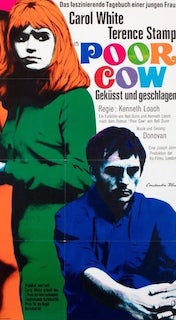
| |
Director: Ken Loach, 1967
Eighteen-year-old Joy, a working-class girl from a large family leaves her alcoholic mother and abusive father to marry Tom. They have a son but the boy’s father is abusive and uninterested in his family and also spends long periods in prison. To support herself and her young son, Joy becomes a barmaid and takes up erotic modeling on the side. Poor Cow was released to mixed reviews but over the years has come to be seen as one of Britain’s best “Kitchen Sink” dramas. Based on the 1967 novel by Nell Dunn. © Studiocanal
|
|
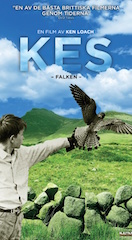
| |
Director: Ken Loach, 1970
Billy, a 15-year-old miner’s son in a working-class Yorkshire town, forms a close bond with a wild kestrel that he trains after reading a book about falconry. Billy's friendship with his kestrel offers a spiritual escape from his dead-end life. Kes pushed British cinema to a new level of realism, using real locations and nonprofessional actors. This poignant coming-of-age drama remains director Ken Loach's most beloved and influential film and was named one of the ten best British films of the 20th century by the BFI. Based on the 1968 novel by Barry Hines. © Criterion
|
|
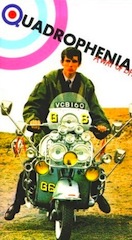
| |
Director: Franc Roddam, 1979
Jimmy, a young mailroom clerk living with his working-class parents in 1960s London, hates his job and his dull life. His only pleasure is the "Mod" lifestyle of music, drugs, fashion and motor-scooters that he shares with his friends. Based on the 1973 rock opera by The Who, this film depicts the rivalry between two subcultures of British youth—"Mods" and "Rockers"—that occasionally spilled over into violence in the seaside towns along the English Channel.
© The Who Films/Polytel
|
|
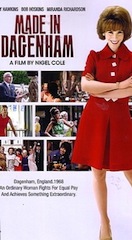
| |
Director: Nigel Cole, 2010
In 1968, the Ford of Britain plant in Dagenham, a suburb of London, was the fourth largest auto manufacturer in the world and one of the largest private employers in Britain. Among the 55,000 workers were 187 women who were employed primarily as upholstery stitchers. This film tells the story of Rita O'Grady, a worker who led a strike for women to be redesignated as "skilled" labor and paid an equal wage as men. Their political struggle led all the way to Parliament and resulted in the passage of the Equal Pay Act in 1970. © BBC Films
|
|
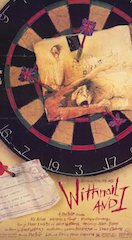
| |
Director: Bruce Robinson, 1987
In 1969, two strung-out and unemployed young actors, Withnail and Marwood,
obtain the key to a country cottage in the Lake District belonging to
Withnail's eccentric uncle Monty and leave their shabby Camden Town flat
for a holiday in rural England. This black comedy, based loosely on the
youthful experiences of writer and director Bruce Robinson, remains one
of the most popular cult films in British cinema.
© Handmade Films
|
|
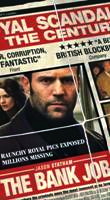
| |
Director: Roger Donaldson, 2008
Based on a 1971 bank heist in London, from which millions of pounds worth of cash and
valuables were never recovered. Details were suppressed by a "D-Notice" government gag
order, allegedly to protect a prominent member of the royal family. According to the
producers, the film reveals the truth for the first time, although it includes significant
elements of fiction and the extent to which it represents historical fact is difficult to
determine. The actual files are sealed in the National Archives until 2054.
© Lions Gate
|
|
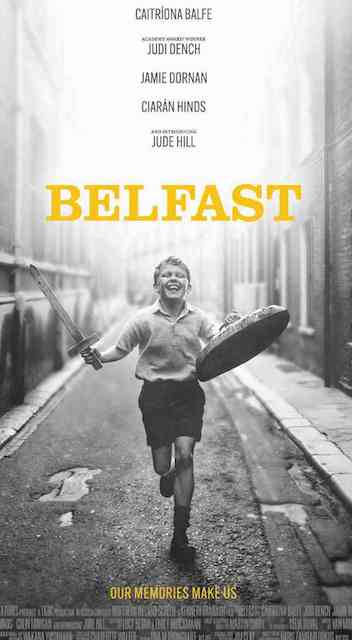
| |
Director: Kenneth Branagh, 2021
This coming of age story is told from the perspective of 9-year-old Buddy, from mid 1969 to early
1970, as he and three generations of his working-class family witness their mixed community descend
into sectarian violence. As the situation worsens, the family struggle with the painful choice of
whether to remain in the city they love or leave home and start a new life away from the violence
and uncertainty of the "Troubles." Based on the childhood experiences of writer-director Kenneth
Branagh. © TKBC
|
|

| |
Director: Yann Demange, 2014
In 1971, Private Gary Hook, a young British soldier, is accidentally abandoned by
his unit following a terrifying riot on the streets of Belfast. Attacked by a mob,
he is alternately helped by random kindness from various locals and pursued by killers
from both the Provisional IRA and the British Army's Military Reaction Force. Unable to tell friend
from foe, the raw recruit must survive the night alone and find his way
to safety through a disorienting, alien, and deadly landscape.
© Crab Apple Films
|
|

| |
Director: Damien O'Donell, 1999
This film is set in Salford, Britain, in 1971. Fish-and-chip shop owner George Khan expects
his family to follow his strict Pakistani Muslim ways. But his
children, with an English mother and having been born and
brought up in Britain, increasingly see themselves as British
and start to reject their father's rules on dress, food,
religion, and living in general.
© Miramax
|
|
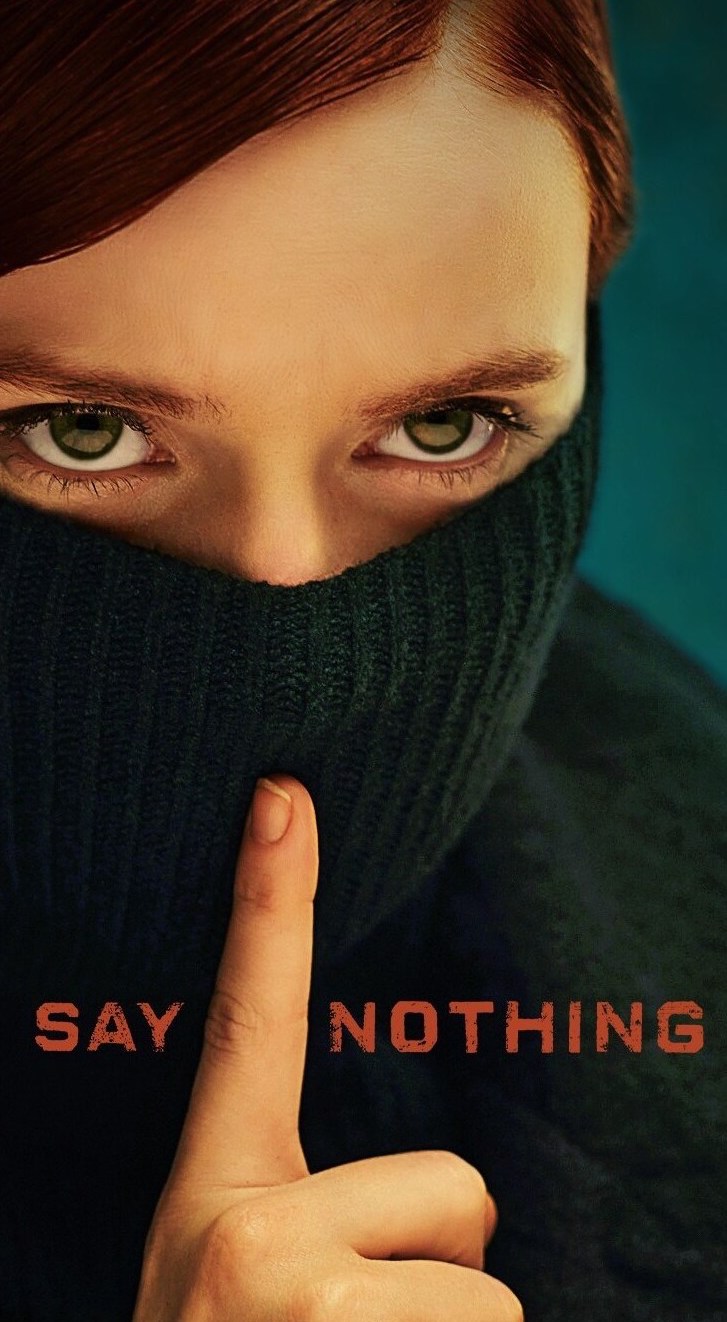
| |
Creator: Josh Zetumer, 2024
This miniseries tells the interwined stories of Dolours and Marian Price, sisters from
a working-class Belfast family who join the IRA, and the adult children of Jean McConville,
a widowed mother of ten who was abducted from her home in 1972 and never seen again.
McConville was just one of many during the thirty years of The Troubles who came to be
known collectively as "The Disappeared." Based on the 2018 book by Patrick Radden Keefe.
© FX Productions
|
|

| |
Director: Ben Wheatley, 2015
Set in a dystopian alternate past in the 1970s, this films focuses on the interconnected lives of the residents of a suburban London apartment tower. From its brutalist design to the wealth of modern conveniences, the building allows its residents to become gradually uninterested in the outside world. The infrastructure begins to fail, social tensions boil over, and the building soon descends into chaos. A harsh commentary on social class, housing policy, technology, and urban decay in postwar Britain. Based on the 1975 novel by J.G. Ballard. © Film 4
|
|
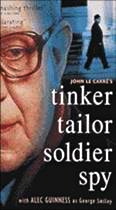
| |
Directors: Frances Alcock and John Irvin, 1979
George Smiley, a retired British spy, is taken to the home of an advisor to the prime
minister on intelligence matters where he is given evidence that one of the men in the senior
ranks of his old agency is a Russian spy. Smiley is asked to find him, without
access to any of the agency’s files or letting on that anyone is under suspicion. This
miniseries was based on the 1974 novel by John Le Carré and starred Alec Guiness as
Smiley. The excellent feature film (2011) stars Gary Oldman. © Acorn Media
|
|
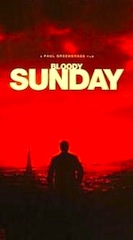
| |
Director: Paul Greengrass, 2002
This film tells the story of Bloody Sunday—January 30, 1972—as it
unfolded over one day, chronicling the arrival of thousands of British
troops in the tense and crowded streets of Derry in Northern Ireland
and the simultaneous preparations by civil rights leaders for a nonviolent
but forceful march that was to make the case for Irish self-determination.
The day tragically ended with British troops killing thirteen unarmed
civilians. Based on the book by investigative journalist Don Mullan, a Derry native who
witnessed the event as a teenager. © Paramount
|
|
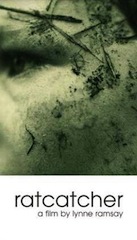
| |
Director: Lynne Ramsey, 1998
Set in a Glasgow slum during a 1973 trash collectors' strike, this film follows young
James, who is distraught after accidentally causing the death of his friend and who
dreams of moving into newly-built council flats. The plot moves between James' family
and his friendships with other children. Even as the trash bags pile up, James takes
comfort in something as simple as being combed for head lice.
© Criterion
|
|
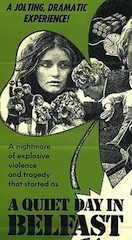
| |
Director: Milad Bessada, 1974
This intense and realistic drama is centered on a pair of Catholic identical twins, one from Belfast and the other living in Canada who comes to visit her sister. The plot culminates in a bombing by the Provisional IRA, the tarring and feathering of one of the women—because of her love for a British soldier—and the ultimate revenge of the troops. Based on the play by Andrew Dalrymple.
© Twinbay Media International
|
|
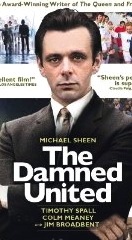
| |
Director: Tom Hooper, 2009
This sports drama portrays Brian Clough’s 44-day tenure as the manager of Leeds United, England’s top football club in the mid-1970s. Shortly after taking over, Clough immediately alienates his players by his disgust at their dirty style of play and his assertion that their earlier victories were the result of cheating. An entertaining look inside Britain’s most important sport and the culture built around it. Based on the 2006 novel by David Peace.
© BBC Films
|
|
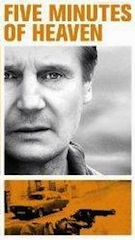
| |
Director: Oliver Hirschbiegel, 2009
In 1975, in Northern Ireland, seventeen-year-old UVF member Alistair Little kills
a Catholic boy, Jimmy Griffin, in his house in front of his younger brother Joe.
Alistair is arrested and imprisoned for twelve years while Joe is blamed by his
mother for not saving his brother. Thirty-three years later, a TV program arranges
the meeting of Alistair and Joe expecting the truth to come out and then for
reconciliation between the two.
© IFC Independent
|
|
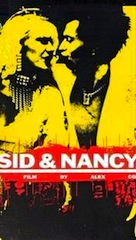
| |
Director: Alex Cox, 1986
The morbid true story of Sid Vicious, bass player with the British punk
group The Sex Pistols, and his girlfriend Nancy Spungen. When the
The Sex Pistols break up after their fateful US tour, Vicious attempts
a solo career while in the grip of a heroin addiction.
A graphic and at times disturbing view of the "punk" subculture that emerged from
the youth of depressed industrial Britain in the late 1970s.
© MGM/UA
|
|
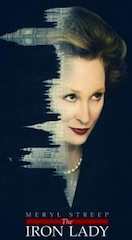
| |
Director: Phillyda Lloyd, 2011
In 1979, Conservative MP Margaret Thatcher became Britain’s first woman prime minister, overcoming barriers of class and gender along the way. This biopic traces the events of Thatcher’s controversial premiership through a series of flashbacks beginning with her first campaign for a seat in Parliament to her resignation as PM in 1990. Meryl Streep won an Academy Award for her portrayal of Thatcher.
© Pathé
|
|
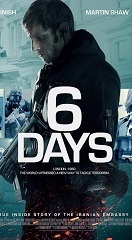
| |
Director: Toa Fraser, 2017
In April 1980, armed gunmen stormed the Iranian Embassy in South Kensington, London, and took 26 hostages. Over the next six days a tense standoff took place that was broadcast on live television across the world. As hostage negotiators pleaded with the increasingly desperate gunmen, a highly trained team of soldiers from Britain's Special Air Service (SAS) prepared for "Operation Nimrod," a raid that would become the standard for counter-terrorism operations in the years after.
© Netflix
|
|
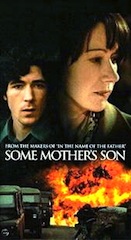
| |
Director: Terry George, 1996
Based on the true story of the 1981 hunger strike in the Maze, a British prison in Northern Ireland,
in which republican prisoner Bobby Sands led a protest against the treatment
of him and other inmates as criminals rather than as prisoners of war. The
film focuses on the mothers of two of the strikers, and their struggle
to save the lives of their sons.
© Castle Rock
|
|
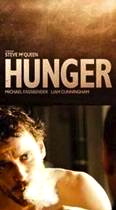
| |
Director: Steve McQueen, 2008
This film dramatizes the six weeks prior to the death of Bobby Sands during the 1981
hunger strikes in Northern Ireland. Sands was the first of several Irish republicans
in the Maze Prison to use the hunger strike to gain status as political prisoners. His example
increased worldwide attention to Northern Ireland's troubles, galvanized the republican
and loyalist communities, and ignited debate about the morality of this extreme form of
protest.
© Blast Films
|
|
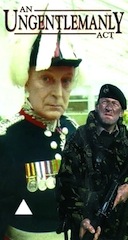
| |
Director: Stuart Urban, 1992
This film portrays the days and hours before and during Argentina's 1982 invasion of the Falkland Islands, a British dependency in the South Atlantic. As Argentine forces land on the eastern island and make their way towards the town of Stanley, a detachment of Royal Marines prepares to defend the governor, his family, and their fellow islanders from the invaders. Based on actual accounts (though with some inaccuracies) the film aired on British TV during the tenth anniversary of the Falklands War.
© BFS Entertainment
|
|
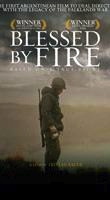
| |
Director: Tristán Bauer, 2005
This Argentine film tells the story of the Falklands War through a series of
flashbacks among veterans living with the scars of their country's "unwinnable"
war. The plot takes the men back to their foxholes on the windswept and desolate
Malvinas (Falklands) during the harrowing battles they fought with British
forces sent to retake the islands. The Falklands War brought down Argentina's
military junta while in Britain it contributed to a surge in
popularity for Margaret Thatcher's government.
© Canal + España
|
|
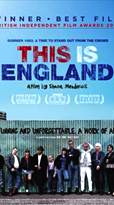
| |
Director: Shane Meadows, 2006
Shaun is a 12-year-old loner living with his mother in an economically depressed
English coastal town in 1983 after his father was killed in the Falklands War.
He runs into a group of skinheads who, against expectations, turn out to be
friendly and take him under their wing and fulfill his need for belonging. A complex
coming-of-age story about race, masculinity and national identity based largely on
the director's own experiences as a youth.
© Warp Films
|
|
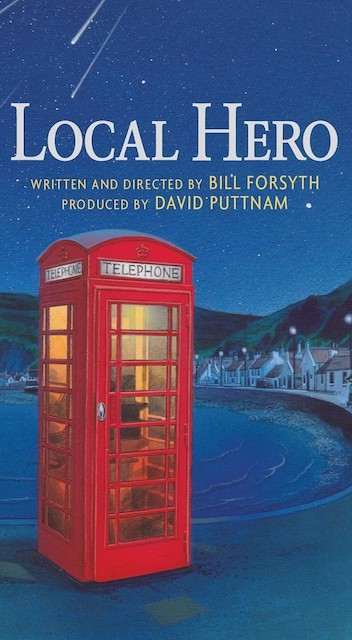
| |
Director: Bill Forsyth, 1983
This critically acclaimed film tells the story of an American representative from
a Houston oil company who arrives in Ferness, a remote village on west coast of
Scotland, to negotiate the purchase of the village and the surrounding property for
the construction of an oil refinery. This low-key but moving film captures well the
beauty of the Scottish Highlands and the charm of its folk traditions. It was filmed
in the mid-1980s during the height of the North Sea oil boom.
© Warner Bros.
|
|
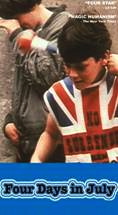
| |
Director: Mike Leigh, 1985
Two Belfast couples are each expecting their first child around the same day
as the July 12th Orange marches. Collette and Eugene are Catholic—he
was crippled from abuse by British soldiers. Lorraine and Billy are
Protestant—he is a soldier in the Ulster Defence Regiment. Both women
have their babies on the same day and share a hospital room while earlier
their husbands sit together in the waiting area. A quietly moving film
about normal human interaction among people in a divided society. © Water Bearer Films
|
|
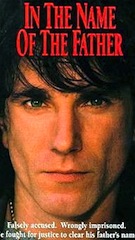
| |
Director: Jim Sheridan, 1993
One of the most controversial court cases in modern British history
is the subject of this award-winning film. Gerry Conlon,
a Belfast youth living in England, and three friends are convicted
of the 1974 IRA pub bombing in Guildford. Even Conlon's father is
jailed. An appeal to the British judiciary reveals forced confessions
and wrongful prosecution. The appeal ultimately wins the release
of the "Guildford Four" after years in prison and calls into question
the integrity of Britain's criminal justice system. © Universal
|
|
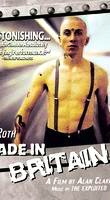
| |
Director: Alan Clarke, 1982
A raw and disturbing film about an unconventional teenaged skinhead
named Trevor who cycles through a system of jails, courtrooms, counseling, and
job centres. Despite the best effort of police and social workers, he remains determined
to hold onto his hatred and defiance rather than toe the line in a society that
values obedience and conformity. Intelligent and articulate, yet excessively
profane, racist, and violent, Trevor challenges the stereotypes
often attached to such figures in British society. Tim Roth's first film role. © Blue Underground
|
|
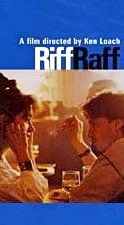
| |
Director: Ken Loach, 1990
The plot of this film follows the relationship between Stevie, an ex-con
construction worker, and his new girlfriend, Susan, an unemployed pub singer.
Yet what is most entertaining and thought-provoking are the conversations
among the multi-racial construction crew as they convert old buildings into
condos for London's nouveau riche. This film is both a comedy and
a harsh critique of the shabby working and living conditions of the urban poor
in Thatcher's Britain.
© New Line Cinema
|
|
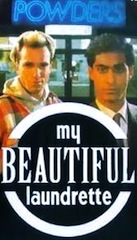
| |
Director: Stephen Frears, 1985
This film is set within the South Asian community in London during
the 1980s. The main character, Omar, gains the running of his Uncle
Nasser's laundromat. He is helped by his friend Johnny, who is white
and an outsider, but not entirely accepted by either the white or
Asian Londoners. A revealing perspective on multi-cultural London
and the "Empire" coming home to Britain.
© Warner Home Video
|
|
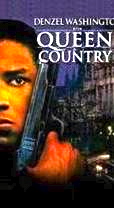
| |
Director: Michael Stellman, 1988
Reuben, a black man, returns to his London council estate after being discharged
from the elite paratroopers regiment as a decorated veteran of Northern Ireland
and the Falklands War. Despite his military service, he finds it difficult to get a job and integrate
back into society. Once Reuben realizes that his illustrious military record holds
no sway in civilian life he slowly but surely falls back into a life of petty crime
with devastating consequences. One of Denzel Washington's earliest film roles. © Working Title Films
|
|
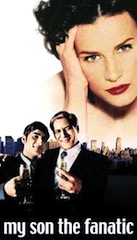
| |
Director: Udayan Prasad, 1997
Parvez is a westernized Pakstani taxi driver living in the English
Midlands town of Bradford. He watches helplessly as his British-born son, Farid,
embraces Islamic fundamentalism in response to the bigotry and perceived
moral degeneracy of working class life in England. The film has its comic
moments but is mostly a drama dealing with cross-cultural and generational
gaps among the South Asian community in Britain.
© Miramax
|
|
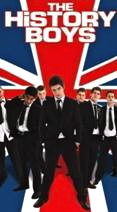
| |
Director: Nicholas Hytner, 2006
Set in Sheffield in 1983, this film focuses on the lives of a gifted but unruly
group of grammar school boys preparing for the entrance examinations of Britain's
elite universities, Oxford and Cambridge. The plot revolves around the relationships
between teachers and students and the typical pressures of adolescence, but also
offers a revealing glimpse into the British educational system. Based on the Tony
award-winning 2004 play by Alan Bennett.
© Fox Searchlight
|
|
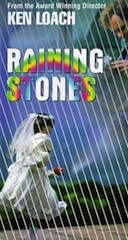
| |
Director: Ken Loach, 1993
This is the story of a working-class Manchester man devoted to his family and his Catholic
religion. Although he has no money and is living on the dole, he is determined to buy his
daughter a new dress for her first communion and tries to raise the money through various
odd jobs until in desperation he is forced to borrow it from a local loan shark. The film
was shot on location in the depressed "overspill" council estate of Langley in
Middleton.
© Fox Lorber
|
|
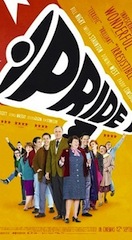
| |
Director: Matthew Warchus, 2014
The uplifting true story of a group of lesbian and gay activists who raised money and travelled to a
beleaguered coal town in Wales to help families affected by the British miners' strike in 1984.
After an awkward start, the "Lesbians and Gays Support the Miners" campaign led to an alliance
between the two communities. A glimpse into the social and cultural changes underway in
Britain during the Thatcher years.
© BBC Films
|
|
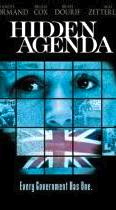
| |
Director: Ken Loach, 1990
After an American human rights lawyer is assassinated in Belfast his girlfriend comes
to Northern Ireland to learn the truth about his death. She is joined by a respected
and fair-minded police detective from England assigned to the case. Their inquiry leads
to backroom meetings with IRA gunmen and officers of the Royal Ulster Constabulary and
exposes political manipulation and betrayal of trust at the highest levels of
government.
© MGM/UA
|
|
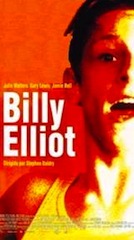
| |
Director: Stephen Daldry, 2000
Set in 1984 against the backdrop of a bitter miners' strike in Yorkshire, Billy Elliot is an
eleven-year-old boy who stumbles out of the boxing ring and onto the ballet floor. There he is forced
to confront the disapproval of his working class mining family and build up his own self-confidence
as he auditions for the Royal Ballet School.
© Universal
|
|
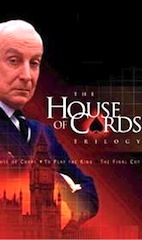
| |
Director: Paul Seed, 1990
Based on the 1989 novel by Michael Dobbs, this BBC miniseries tells the
darkly satirical story of a ruthless and unscrupulous Conservative
MP, Francis Urquhart, determined to advance himself politically,
socially, and financially at all costs. House of Cards
first aired on British television in the same year that Margaret
Thatcher resigned after eleven years as Prime Minister. The series
is part of a trilogy whose later installments include To Play the
King (1993) and The Final Cut (1995). © BBC Video
|
|
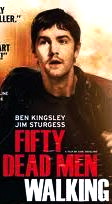
| |
Director: Kari Skogland, 2008
From 1987 to 1991 Martin McGartland, a young Belfast Catholic, lived the
harrowing double life of a secret agent. To the IRA, he was a trusted
intelligence gatherer and an integral member of an active cell, but to
the British government he was one of their most valuable informants.
McGartland is credited by British intelligence with saving the lives
of at least fifty people marked for assassination by the IRA.
Based on McGartland's 1997 book.
© Phase 4 Films
|
|

| |
Director: Gurinder Chadha, 2002
Jess is a girl from a conservative Sikh family
living in Hounslow, West London. Her only desire is to become a famous
football star like her idol, David Beckham, but her traditional family
refuses even to consider it. A light-hearted look at the tensions of
family politics and growing up in the midst of two cultures.
© Twentieth Century Fox
|
|
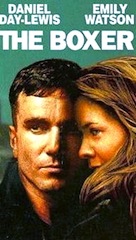
| |
Director: Jim Sheridan, 1998
When former IRA member Danny Flynn returns to Belfast after fourteen
years in prison, he wants only to find peace, resume his boxing career,
and search out his long lost love. This film portrays with stark
honesty the lives of ordinary people caught up in the sectarian
violence of Northern Ireland, one of Britain's longest and most
troublsome political problems.
© Universal
|
|
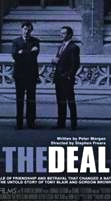
| |
Director: Stephen Frears, 2003
This British television drama depicts the longstanding political rumor
that Tony Blair and Gordon Brown made a pact that Blair would step down
as Prime Minister so that Brown could take his place. The film begins in
1983, as the two men are first elected to Parliament, and concludes in
1994 at the time of the supposed agreement—with a brief epilogue following
the 1997 general election. Based on James Naughtie's 2001 book The Rivals.
© Granada Television
|
|
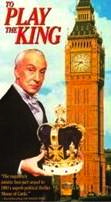
| |
Director: Paul Seed, 1993
In this second installment of the House of Cards trilogy,
Prime Minister Urquhart
faces off against the newly crowned king over the government's policies. The king's desire
to be relevant to his people as a social reformer leads him to throw his high-profile support
behind the opposition leader, violating the tradition of royal non-interference in parliamentary
politics. A darkly comic portrayal of the still tenuous relationship in Britain between the
monarchy and government. Based on the 1992 novel by Michael Dobbs.
© BBC Video
|
|
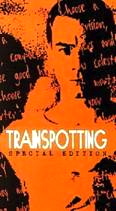
| |
Director: Danny Boyle, 1996
Based on Irvine Welsh's controversial first novel from 1993, this film revolves around a group of heroin-addicted friends among the
working-class youth of Edinburgh and paints a bleak picture of
the violent and hopeless existence within Britain's junkie
subculture. Filled with black humor and local slang, the
film provides a gripping look into the darker side of
modern British society.
© Miramax
|
|
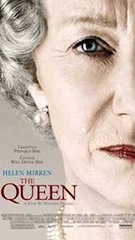
| |
Director: Stephen Frears,
2006
An intimate and, at times, darkly comic view of the interaction between Queen
Elizabeth II and the new prime minister Tony Blair following the untimely death of
Diana, Princess of Wales, in August 1997. As days passed, the Queen and Prime
Minister struggled to reach a compromise between what was a private tragedy
for the Royal family and the public demand for an overt display of
mourning from the nation's leaders.
© Miramax
|
|
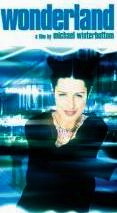
| |
Director: Michael Winterbottom, 1999
This realistic and well-acted film traces the ordinary working-class lives
of a middle-aged London couple and their four adult children over a period
of three days during Guy Fawkes weekend. A harsh and unsentimental view of
the loneliness, anonymity, vulnerability and, ultimately, the humanity of
life in modern urban Britain.
© BBC Films
|
|
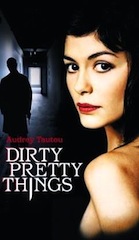
| |
Director: Stephen Frears, 2002
Okwe, a kind-hearted Nigerian doctor, and Senay, a Turkish chambermaid, work at the same West
London hotel. The hotel is the sort of place where drug dealing and prostitution regularly
takes place, but when Okwe finds a human heart in one of the rooms, he uncovers something
far more sinister than just a common crime. A harrowing yet uplifting view into the shadow world
of illegal immigrants and asylum seekers in present-day Britain.
© Miramax
|
|
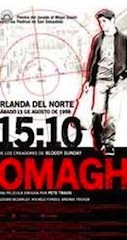
| |
Director: Pete Travis, 2004
On August 15, 1998, a car bomb exploded in Omagh, Northern Ireland, killing 29 people and
injuring some 220 others. It was the single worst act of terrorism in Northern Ireland in over
thirty years. This film, produced for British television, revolves around the atrocity,
the subsequent investigation, and the lives of the affected families.
© Channel Four Films
|
|
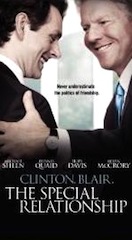
| |
Director: Richard Loncraine, 2010
This TV drama focuses on the political relationship between Tony Blair and Bill Clinton.
In 1994, Blair as Labour opposition leader travels to the US and is impressed by
the centrist policies of the newly-elected Democrat president—on which he then models
the political refashioning of his own party. After Blair becomes prime minister in 1997, the story
shifts to the pair's handling of such temptestuous issues as Northern Ireland and Kovoso and
the controversy surrounding the Lewinsky sex scandal. © BBC Films
|
|
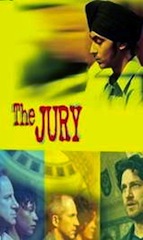
| |
Director: Pete Travis, 2003
In this miniseries produced for Granada Television, a jury
is selected from a cross-section of British society to render a verdict in
a racially charged case. Duvinder Singh, a Sikh schoolboy, is accused of
murdering a white classmate who had continually bullied him. This series
was filmed at the Old Bailey, the main London courthouse, and accurately
portrays the inner workings of the British criminal justice system as well as
the tense racial politics of contemporary urban Britain. © Granada/WGBH
|
|
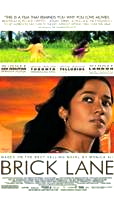
| |
Director: Sarah Gavron, 2007
A young Bangladeshi woman, Nazneen, arrives in 1980s London, leaving behind her beloved sister
and home, for an arranged marriage and a new life. Trapped within the four walls of her flat
in East London, and in a loveless marriage with a middle-aged businessman, she fears her soul
is quietly dying. Yet the free-thinking society that surrounds her eventually penetrates
the traditions she holds dear, and slowly Nazneen awakens to her own ideas and her own
choices. Based on the 2003 novel by Monica Ali.
© Film4
|
|
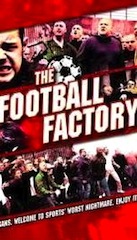
| |
Director: Nick Love, 2004
A lurid view into the dark world of football hooliganism, one of Britain's worst social
problems. The story follows three generations of working-class English
males obsessed with their football team, Chelsea, and with the drinking, drugs,
violence, petty theft, and general "yob culture" that accompanies their identity
as fans. A disturbing film that at times seems as much a celebration of football
hooliganism as it is an exposé. Based on the bestselling 1996 novel by John King.
© Vertigo Films
|
|
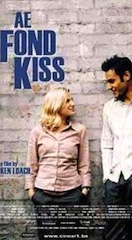
| |
Director: Ken Loach, 2004
Set in Glasgow, this is the story of a cross-cultural relationship
between Qasim, an aspiring DJ of Pakistani descent, and Roisín, an Irish
Catholic piano instructor. Pressured by his parents to accept an arranged
marriage with his cousin Yasmin, Qasim must choose between his love for Roisín
and his duty to comply with the traditional values of his family and Muslim
community. Meanwhile, Roisín is denied employment at a Catholic school unless
she ceases living with a man (Qasim) who is not her husband.
© Lions Gate
|
|
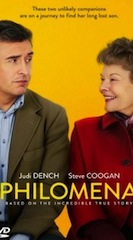
| |
Director: Stephen Frears, 2013
Based upon the true story of Philomena Lee, who as an unwed mother was forced to give up her baby to a convent in Tipperary in 1951. Fifty years later she embarks on a journey to discover what happened to her child and is aided by Martin Sixsmith, a British investigative journalist. A controversial look into the coerced adoptions and forced labor of unwed mothers that was common practice in postwar Ireland. Based on the 2009 book by Sixsmith.
© Pathé
|
|
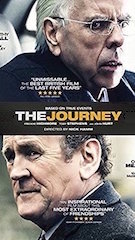
| |
Director: Nick Hamm,
2016
In 2006 the Northern Ireland peace agreement is at a critical stage as former enemies Ian Paisley and Martin McGuiness meet to negotiate its future. Paisley is the leader of the fiercely loyalist Democratic Unionist Party while McGuiness, a former IRA commander and Sinn Féin politician, represents the Irish nationalist community. During a long car ride together they gradually go from barely speaking to each other to arguing furiously to developing a close enough working relationship to form a government for Northern Ireland.
© Greenroom Entertainment
|
|
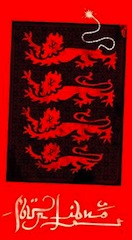
| |
Director: Christopher Morris, 2010
This daring comedy tells the story of a hapless group of British jihadists
with delusions of grandeur who attempt to transform their abstract dreams of
glory and martyrdom into action. After an incomplete period of training in
Pakistan, the young men return to Britain to carry out a suicide bombing during
the London Marathon. An amazing film—on what is clearly a taboo subject—that manages
to be tense, poignant, thought-provoking and very funny.
© Film4
|
|
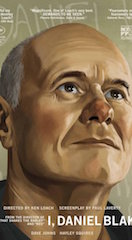
| |
Director: Ken Loach, 2016
After having suffered a heart-attack, a 59-year-old widower and laid off carpenter befriends a single mother and her two children as they navigate through the impersonal, Kafkaesque job centre bureaucracy to receive their unemployment and support allowance. The film won the Palme d'Or at the 2016 Cannes Film Festival and was widely praised by film reviewers in Britain, but it was criticized by the Work and Pensions Department as an unfair portrayal of their agency and of the British welfare system more generally.
© Sixteen Films
|
|

| |
Director: Toby Haynes, 2019
This energetic and disturbing TV drama depicts the events leading up to Britain's 2016 "Brexit" referendum on the country's continued membership in the European Union. The story focuses on Dominic Cummings, the chief strategist behind the Vote Leave campaign, and raises questions about the influence of the media and technology on public opinion and politics. When this program first aired in 2019, Britain still had not left the EU.
© Channel 4 Films
|
|
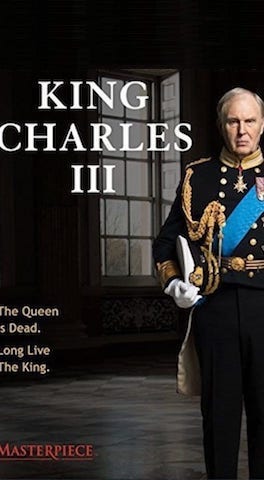
| |
Director: Rupert Goold, 2017
A neo-Shakespearian speculation on the early reign of Charles, son and heir to Queen Elizabeth II. As king, Charles precipitates a constitutional crisis when he refuses to grant royal assent to a controversial bill restricting freedom of the press. The standoff between the king and parliament sparks violent protests across the country amid fears that British democracy is under threat. The BBC, Britain's public service broadcaster, was criticized by some for producing a film that could be seen to denigrate the monarchy. Based on the 2014 play by Mike Bartlett.
© BBC
|
|
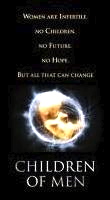
| |
Director: Alfonso Cuarón, 2006
By 2027, all women have become inexplicably infertile and it is only a matter
of time before the human race dies out. In Britain, this existential crisis has led
to a breakdown of civil society and the rise of a police state with immigration,
factionalism, and violence spinning out of control. Based on the 1992 novel by
P.D. James, Children of Men is similar to Orwell's 1984 and
Burgess' A Clockwork Orange as a dystopian vision of Britain's
future that is really a critique of the time in which it was written.
© Universal
|
|

